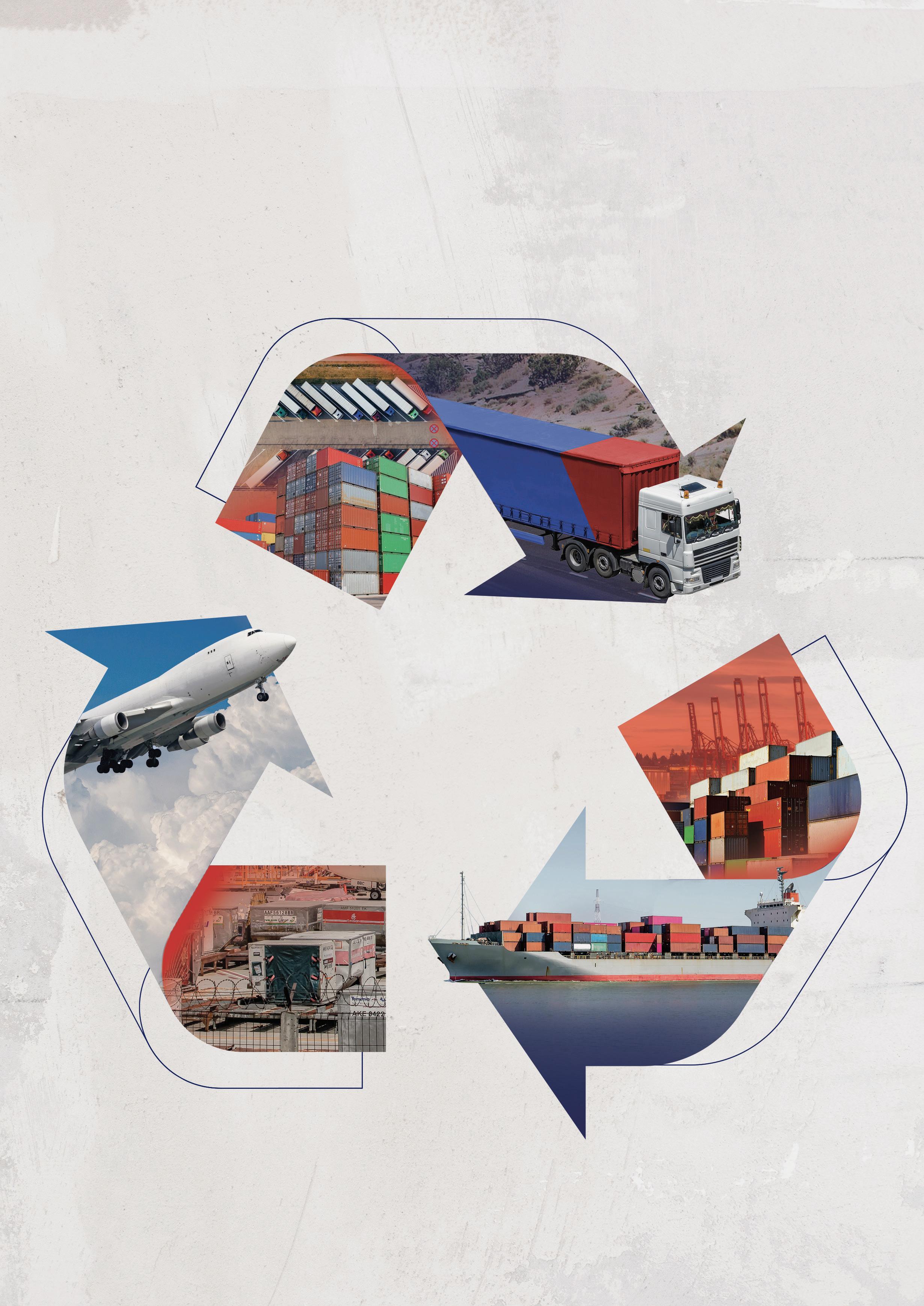
PATHWAYS:
2024
MCI (P) 002/07/2016 ISSN 2010-4227 THE TRADE MAGAZINE FOR THE ASIA-PACIFIC AND MIDDLE EAST REGION Vol.40 No. 1 March/April 2024
Rethinking Logistics for
PLANET-FRIENDLY
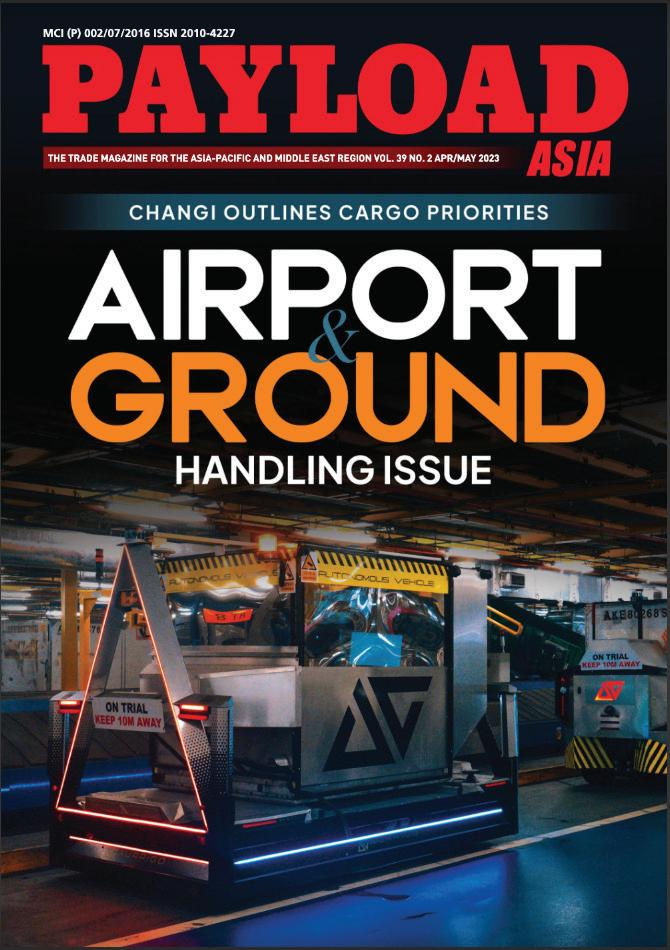

Simon Lee (+852) 9437 2779 sales@harvest-info.com Chua Chew Huat (+65) 9863 7382 sales-sg@harvest-info.com Matt Weidner (+1) 610 486 6525 mtw@weidcom.com FOR ADVERTORIALS AND AD PLACEMENTS

Harvest Information Pte. Ltd. 531 Upper Cross Street,#04-16, Singapore 050531
EDITORIAL/PUBLISHER
Keen Whye Lee Publisher publisher@harvest-info.com
Cath Isabedra Chief Editor editor-pla@harvest-info.com
OPERATIONS
Mari Vergara Country Manager manager-ph@harvest-info.com
MARKETING
Lali Singson Marketing Manager mktg@harvest-info.com
SALES
Simon Lee Hong Kong, Europe and Middle East sales@harvest-info.com
Chua Chew Huat Asia Pacific sales-sg@harvest-info.com
Matt Weidner North America mtw@weidcom.com
TECHNICAL SUPPORT
MJ Magsalin tech@harvest-info.com
GRAPHIC LAYOUT
Red Van Cliff Estocado vancliff.estocado@gmail.com

EDITOR’S NOTE
Dear Readers,
As we release this edition of Payload Asia, we focus on an imperative that resonates across the globe: sustainability in aviation, transport, and logistics. This edition serves as a vital pulse on the burgeoning integration of sustainable practices within our industry sectors.
This issue also celebrates the recent enhancements to our editorial process. These changes, driven by our commitment to excellence and innovation, have allowed us to dive deeper and cast a wider net in capturing transformative stories that resonate across our industries.
This edition, therefore, marks a significant milestone in our journey. It reflects a conscientious and strategic enhancement of our editorial standards and practices, ensuring we bring our valued readers even more engaging, insightful, and forward-thinking stories. While these improvements have adjusted our publication schedule, they signify our dedication to keeping you at the forefront of industry advancements.
With a sharpened focus on the burgeoning integration of sustainable practices, our mission remains clear—to furnish you with a comprehensive overview of the innovative approaches and technologies driving this green transformation
We are setting the stage for discussions that inspire and propel the sector forward in an era of intensifying environmental awareness and regulatory pressures.
As loyal readers of Payload Asia, your engagement and feedback have been instrumental in this editorial evolution. With this special edition, we invite you to explore the enhanced depth and breadth of our coverage.
Join us as we navigate these transformative times and work towards a more sustainable and prosperous future for all.
Connecting the skies with every story,

 Catherine Isabedra Chief Editor
Catherine Isabedra Chief Editor
1
MARCH - APRIL 2024 | www.payloadasia.com
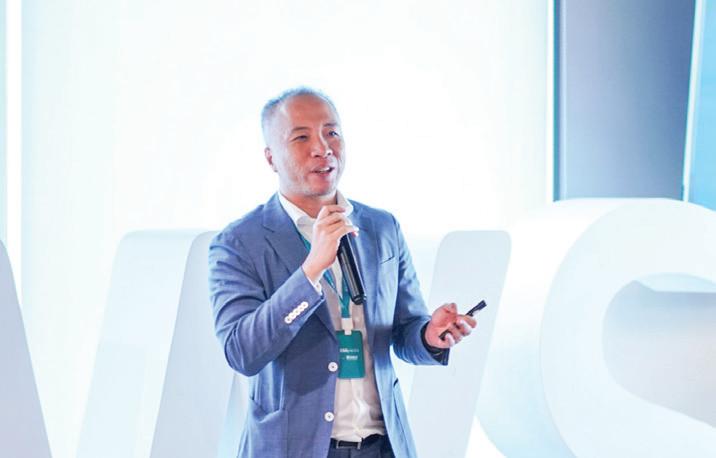
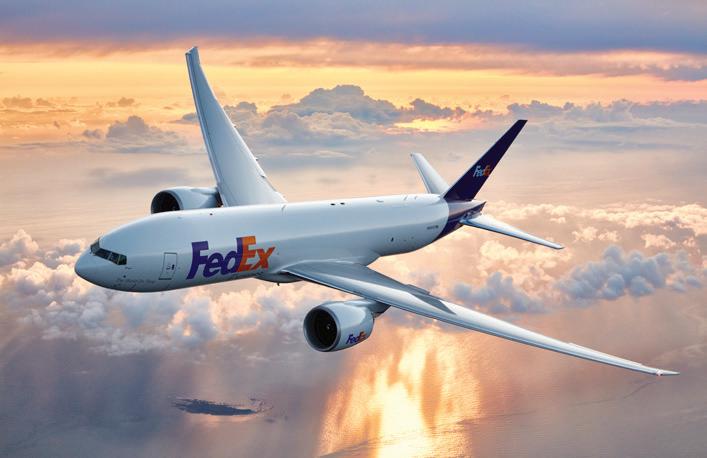
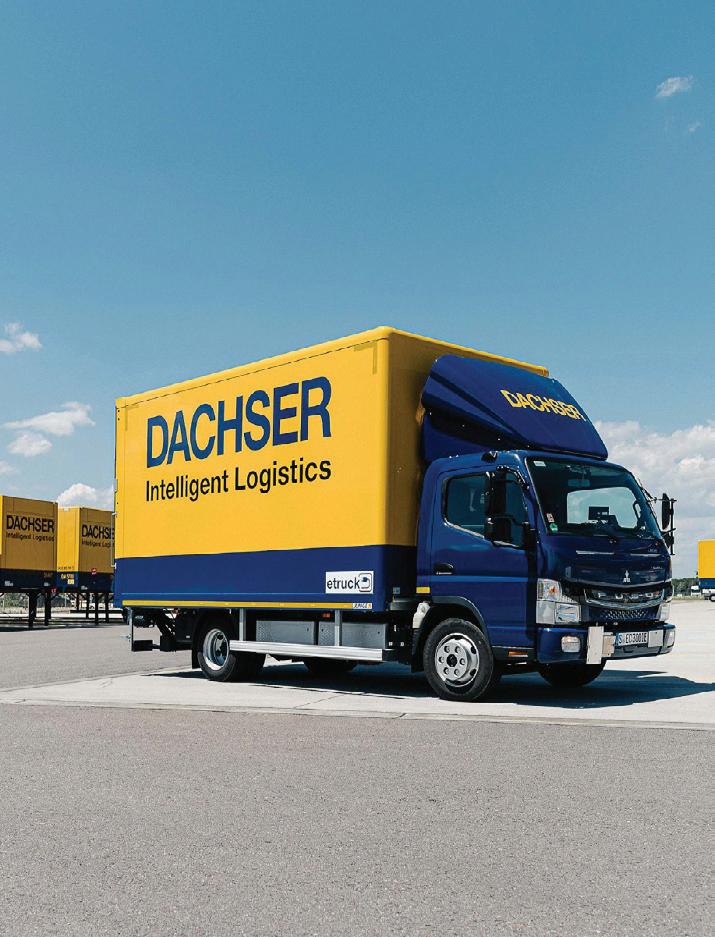
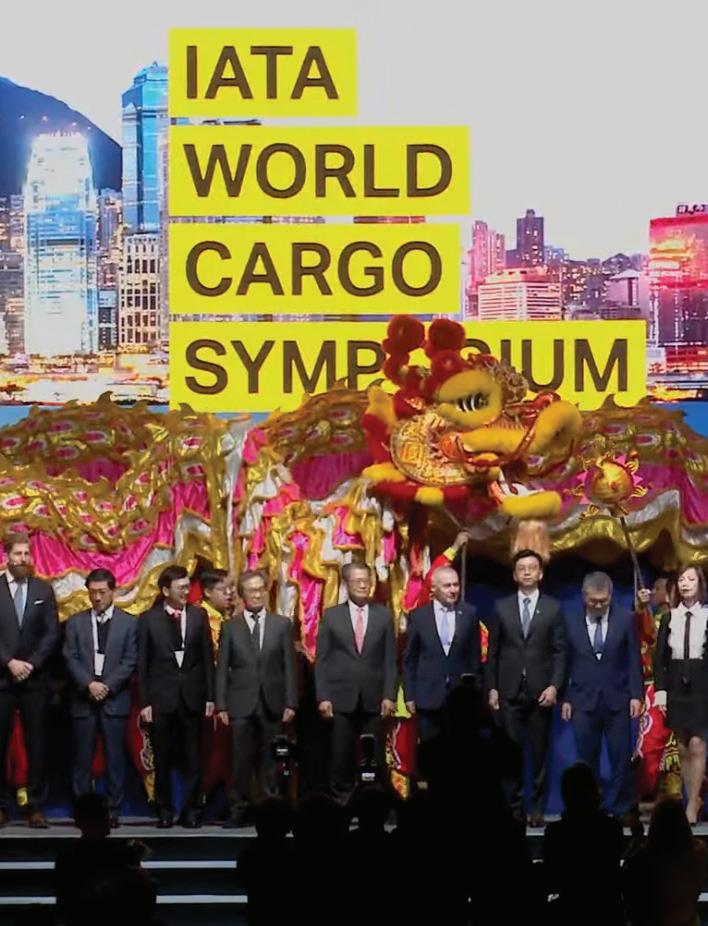
Qatar Airways retires its last queen freighter
Fits Cargo joins WebCargo by Freightos
Air India signs long-termdeal with Unilode
Qatar Airways announces the launch of flights to Kinshasa, Democratic Republic of Congo
Azorra delivers first Embraer E190-E2 aircraft to Scoot
Incheon joins winning bid for Manila’s NAIA rehab project
Air New Zealand tests hydrogen use at Wellington
Cargo volumes continue to grow at Liege Airport
More than 1.7 million passengers at Brussels Airport in March
Etihad awards 3-year global cargo contract to WFS
Hong Kong’s cargo handlers gain IEnvA certification
dnata’s autonomous drones take off in Dubai
Cathay Cargo Terminal eyes ‘cashless, plastic-free’ ops
SATS Ltd. makes purchase in Stockholm, divests in the US
CHAMP floats solution for e-commerce parcels into the EU
Dachser expands food logistics network in the Nordics
U-Freight to boost healthcare supply chains with new partner
Shanghai-based CTS opens first Mexican warehouse
Kuehne+Nagel widens Asia road network with acquisition
Kerry Logistics takes over French air freight specialist
Teleport goes live on CargoWise
Aramex stays resilient in 2023 as int’l express volumes soar
Cainiao, Saudia, WFS form Liège eHub trifecta
FedEx makes ‘historic’ cross-border delivery with electric vehicle
Greenwashing: What do transportation and logistics companies need to know?
Logistics trends to look out for in 2024
Charting a Course for ClimateFriendly Logistics: A Deep Dive into Dachser’s Sustainability Initiatives
Hong Kong Takes Center Stage at IATA WCS 2024, Showcasing Air Cargo Resilience and Innovation
Revival and Innovation at the Singapore Airshow 2024

2 MARCH - APRIL 2024 | www.payloadasia.com
04 08 18 20 28 28 15 05 06 07 04 08 08 09 09 10 10 11 11 12 12 12 13 13 14 05 06 07 05 CONTENT PAGE NEWS FEATURE STORY SPOTLIGHT EVENTS INSIGHTS INSIGHTS FEATURE STORY SPOTLIGHT EVENTS 15 18 20 22




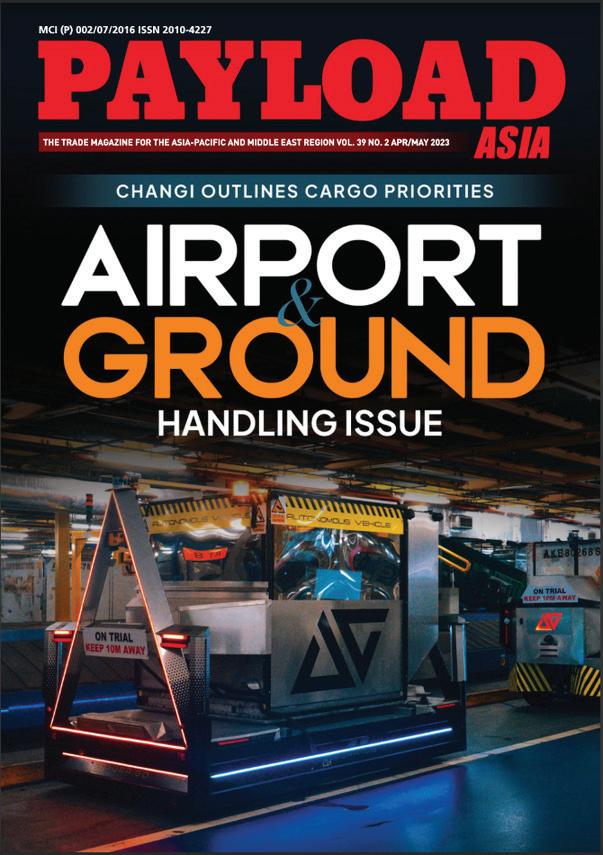
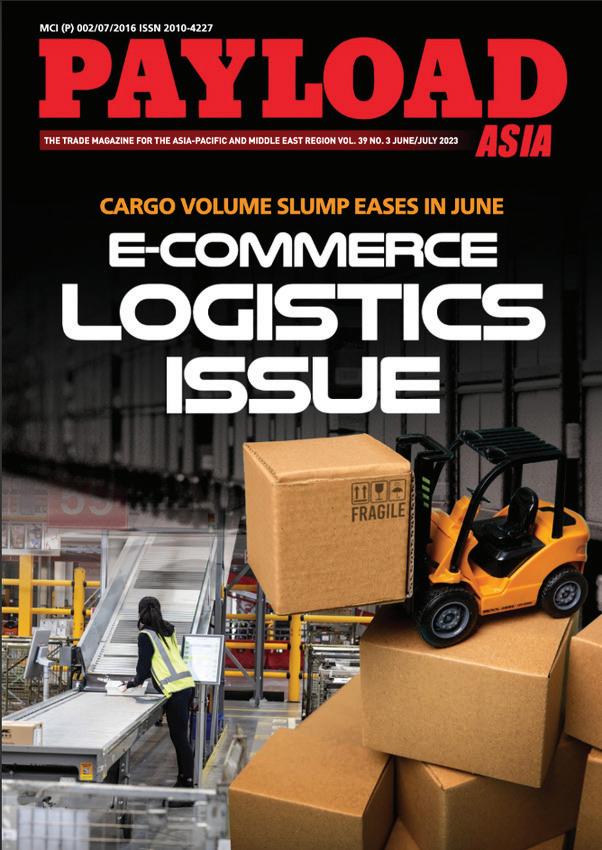

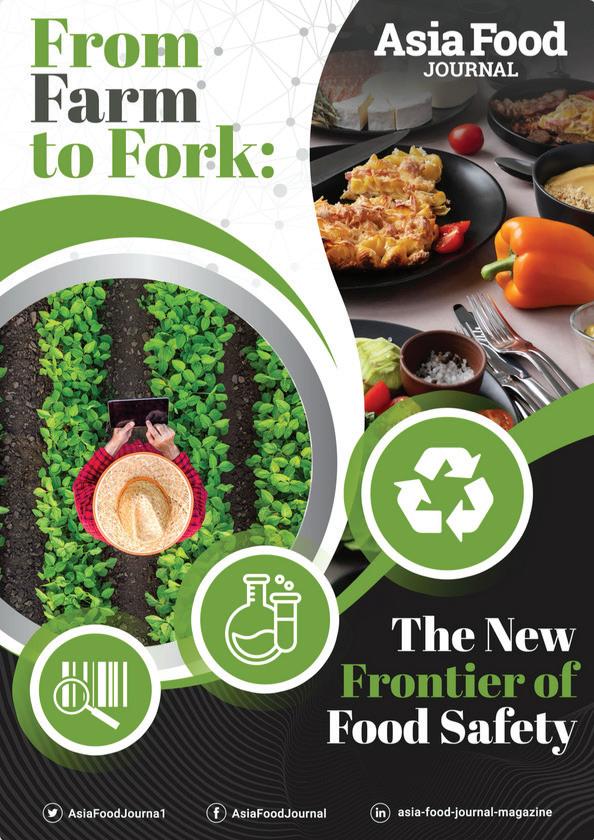
Office Address: Harvest Information Pte Ltd 531 Upper Cross Street, #04-16 Singapore 050531 For advertising opportunities, please contact: Simon Lee Sales Director, HK & International (+852) 9437 2779 sales@harvest-info com Chua Chew Huat Sales Director, Asia Pacific (+65)
7382 sales-sg@harvest-info.com The publisher of Payload Asia Asia Food Journal Television Asia Plus
9863
NEWS - CARRIERS
Qatar Airways retires its last queen freighter
On March 1, 2024, Qatar Airways Cargo marked a significant transition in its operations as the last Boeing 747F, registered as A7-BGB, completed its final commercial cargo flight. This flight, numbered QR8807, arrived in Doha from Barcelona at 15:00 local time, signaling the end of an era for this type of aircraft within the airline’s fleet.
Since joining Qatar Airways Cargo
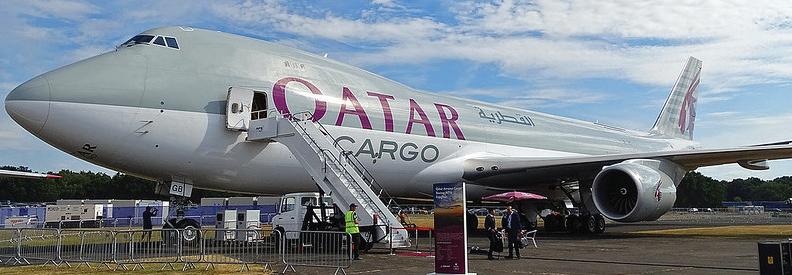
Fits Cargo joins WebCargo by Freightos
Fits Cargo has partnered with e-booking solution and interline platform WebCargo by Freightos,
as the airline looks to ignite its sales through digital channels.
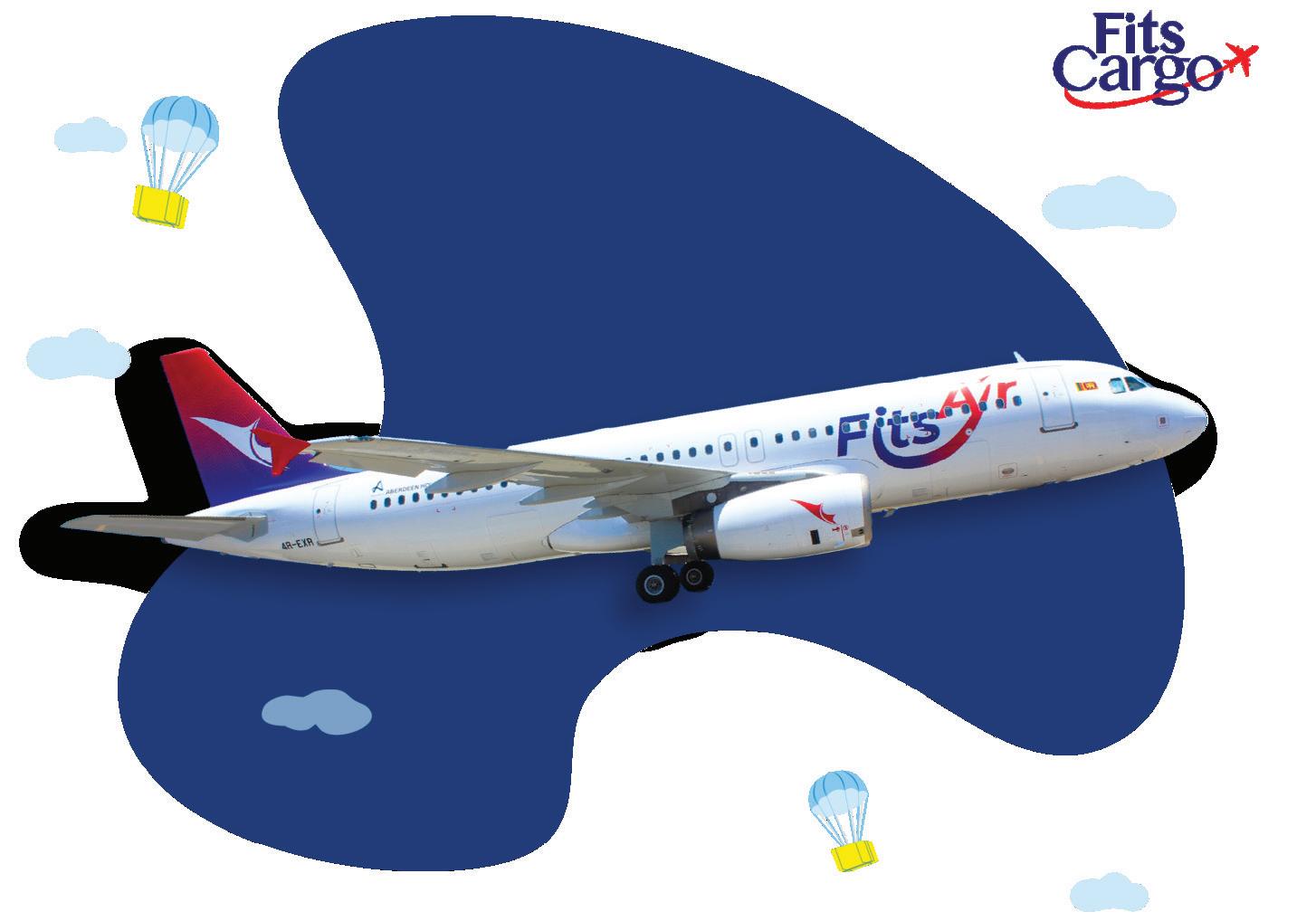
on September 26, 2017, A7-BGB has predominantly served Incheon, with a total of 1,165 flights, and was a frequent visitor to other major cargo hubs, including Frankfurt, Amsterdam, and Guangzhou. Over the course of its seven years of service, A7-BGB, along with another freighter of the same model, accomplished more than 9,000 flights and accumulated over 66,000 block hours. It transported nearly 800,000 tonnes of cargo, including highvalue items such as race cars and racehorses, as well as crucial medical supplies and equipment during the pandemic.
The Sri Lanka-based carrier has started offering capacity on WebCargo’s platform on popular lanes, including Chennai–Colombo, Colombo–Dubai and India, and selected destinations.
Fits Cargo combines its own physical airline operation as well as interline agreements with over 160 airlines, and the collaboration allows it to extend services across WebCargo’s extensive network of freight forwarders and airline carriers.
It flies over 4 million kilograms of air freight annually, with a direct presence in Dubai, India, Hong Kong, and the Maldives and GSA and CSAs set up in over 70 countries.
“Fits Cargo’s portfolio of interline partnerships is a perfect fit for WebCargo’s platform, the first of its kind to offer integrated digital interline services,” said Manel Galindo, chief revenue officer at WebCargo.

4 MARCH - APRIL 2024 | www.payloadasia.com
Air India signs long-termdeal with Unilode
Unilode Aviation Solutions has signed a long-term contract with Air India for full-service ULD management of the airline’s passenger and cargo flights.
Unilode, who did not mention the deal value and the length of contract, will provide full ULD management solutions and digitalised containers and pallets from its pool for flights and contribute to Air India’s sustainability targets.
Air India has firm orders for several wide-body aircraft and has announced plans to grow its cargo capacity by 300 percent and carry 2 million tonnes come 2028. It currently serves around 100 domestic and international destinations with its fleet of over 120 aircraft. Unilode said it will commit to acquiring new stateof-the-art ULDs to meet the demands of the carrier.
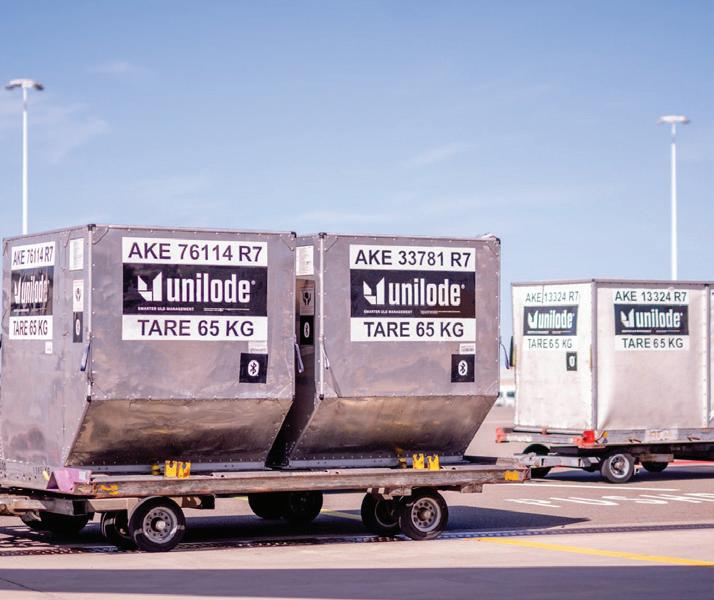
Qatar Airways announces the launch of flights to Kinshasa, Democratic Republic of Congo
Qatar Airways announces the latest expansion of its network to include Kinshasa, Democratic Republic of Congo (DRC), enabling greater frequencies and increased capacity to Luanda, Angola.
This latest network expansion provides passengers with greater travel choices within a key region of Africa. It opens up a new entry point for international travel from Africa to China, Europe, and the India Subcontinent using Doha, Qatar, as a gateway. Adding Kinshasa increases
the number of destinations in Africa served by the award-winning airline to twenty-nine.
Starting June 1, 2024, Luanda will see a frequency increase from one weekly flight to four weekly flights, with a combined service to Kinshasa, which Qatar Airways will serve for the first time. For a world-class experience, the new route will be served by a Boeing 787-8 Dreamliner, equipped with 22 Business Class seats and 232 Economy Class seats.

Azorra delivers first Embraer E190-E2 aircraft to Scoot
Senior executives from Azorra, Scoot, and Embraer attended a special handover ceremony at Embraer’s facility in Brazil. Named ‘Explorer 3.0,’ in celebration of the third and newest fleet addition to the Scoot family, the delivery of the E190-E2 marks the first time a Singapore carrier is introducing an aircraft from the Brazilian manufacturer.
Scoot E2 services will begin in May 2024 with Explorer 3.0’s inaugural flight to Krabi, Thailand.
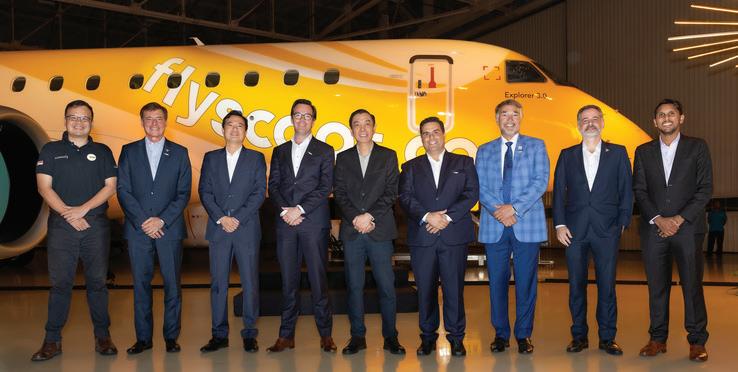

5 MARCH - APRIL 2024 | www.payloadasia.com NEWS - CARRIERS
Incheon joins winning bid for Manila’s NAIA rehab project
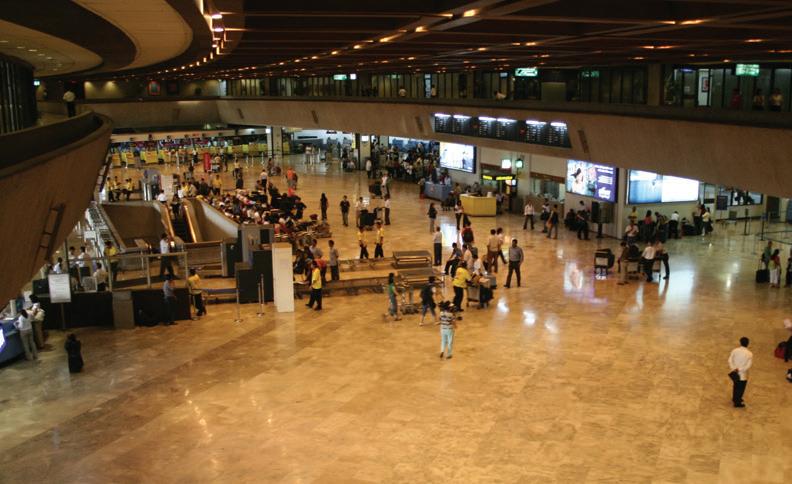
Incheon International Airport Corporation has acquired development and operational rights for Manila’s Ninoy Aquino
Air New Zealand tests hydrogen use at Wellington
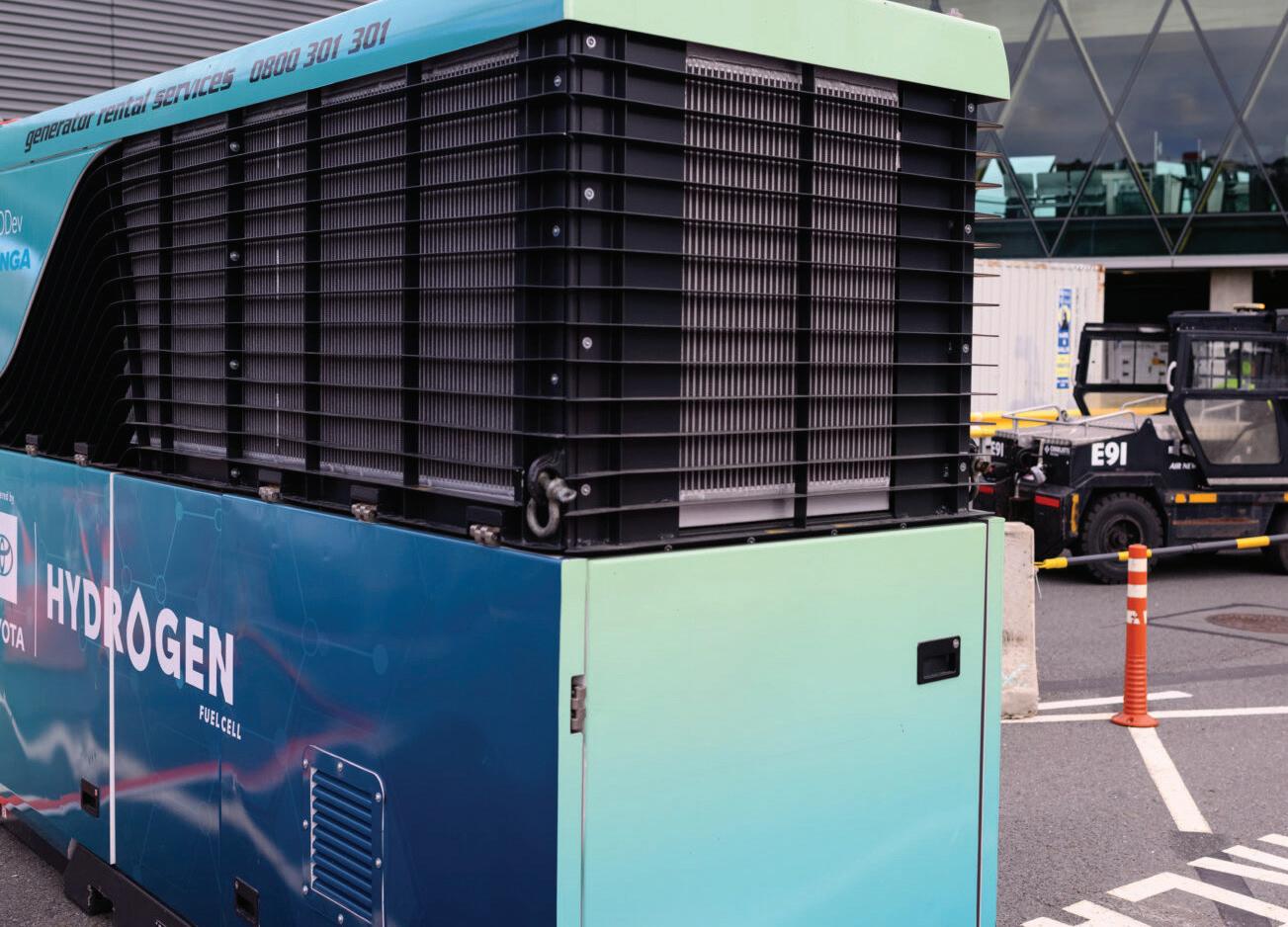
Four leading New Zealand companies—Air New Zealand, Wellington Airport, Toyota, and Hiringa Energy—are collaborating
to integrate hydrogen technology into aviation for the first time in New Zealand. This pilot project at Wellington Airport involves using
International Airport (NAIA) through a 25-year public-private partnership, with plans to invest approximately 4 trillion won (US$30 billion). Leading a consortium with notable partners like San Miguel Holdings Corp., Incheon outbid international competitors by excelling in qualification, technology, and price evaluations.
This project aims to expand and optimize NAIA to handle up to 62 million passengers, establishing it as a regional mega-hub and enhancing the Philippine economy by involving local companies in forthcoming construction and design projects. This initiative is part of Incheon’s broader strategy to extend its global footprint in airport management, following successful projects in Indonesia, Kuwait, and Poland.
hydrogen to power Air New Zealand’s electric tugs and service vehicles, testing the feasibility of hydrogen as a clean energy source in airport operations. The trial, from March 4 to 15, utilizes a hydrogen fuel cell provided by Toyota to generate electricity, with Hiringa Energy managing the hydrogen supply.
This initiative marks a significant step towards adopting hydrogen-powered aircraft in New Zealand, addressing challenges related to the supply, transport, and infrastructure needed for hydrogen fueling. Air New Zealand aims to lead in the commercial use of hydrogen in aviation, inspired by successful international applications. The trial tests hydrogen’s viability at a New Zealand airport and aligns with broader environmental goals, demonstrating the potential of hydrogen to significantly reduce carbon emissions in the aviation sector and beyond.

6 MARCH - APRIL 2024 | www.payloadasia.com
NEWS - AIRPORTS
Cargo volumes continue to grow at Liege Airport
March 2024 confirms Liege Airport’s excellent start to the year, with tonnage up 16 percent on March 2023.
The number of cargo aircraft movements rose by eight percent in March 2024 compared with the
same period in 2023. Freight traffic rose by 16 percent (104,080 tons vs. 90,097 tons) in March 2024 and by more than 14 percent year-to-date in 2024.
This increase in volumes outstrips the 11 percent global demand
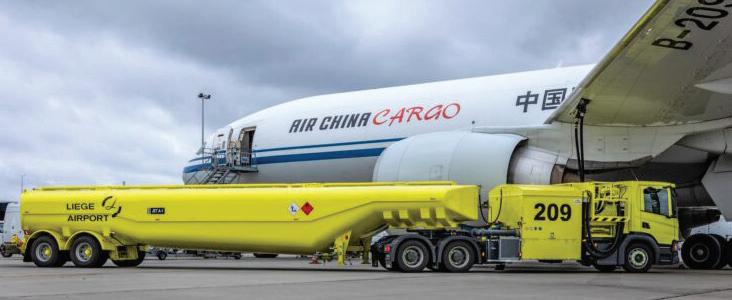
More than 1.7 million passengers at Brussels Airport in March
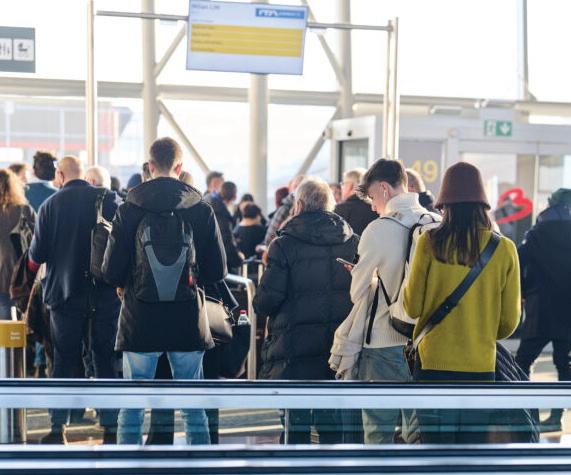

trend, as revealed by an analysis by Xeneta1. Cargo air transport got off to a stronger start than forecasted at the end of 2023. E-commerce, the difficulties encountered by maritime transport in the Red Sea, and the shift towards airfreight further fueled this strong growth.
The airport’s transformation continues, with operations occurring more during the day and less at night. In March 2024, night flights were 12 percent down compared to March 2023 (860 movements vs. 981 movements), while daytime movements grew by 26 percent. In addition, since the beginning of the year, the airport has seen a reduction in the number of flights operated by B747-400F and 747-200F (-8%), the least acoustically efficient aircraft.
In March, Brussels Airport reported a 9% increase in passenger numbers compared to the previous year, reaching 1,742,478 despite disruptions from flight suspensions to Tel Aviv and airline strikes. This growth includes an increase in intercontinental travelers, with nearly 17% of passengers being transfer passengers. The most popular destinations were countries like Spain, Germany, and Italy.
However, cargo volumes at the airport decreased by 2% to nearly 65,000 tonnes, affected by a decline in full freighter and express services, despite a 20% increase in belly cargo from passenger flights. Imports from Asia saw a significant rise due to an uptick in e-commerce activities, while exports to Asia and North America decreased sharply. Overall, aircraft movements increased by 3%, with passenger flights up and cargo flights down.
7 MARCH - APRIL 2024 | www.payloadasia.com NEWS - AIRPORTS
NEWS - GROUND HANDLING
Etihad awards 3-year global cargo contract to WFS
Etihad Cargo has signed a 3-year cargo handling agreement with Worldwide Flight Services (WFS), a SATS Group member, covering 12 major international airports in
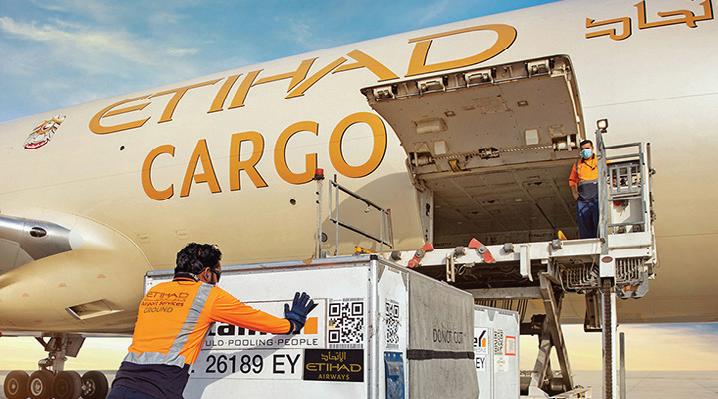
Europe, Scandinavia, North America, India, and Asia Pacific.
The two organisations signed their first cargo handling agreement in Frankfurt in 2005. The new contract will see WFS handle over 150,000 tonnes of cargo each year for the Abu Dhabi-headquartered airline. The deal covers existing North American operations at New York JFK and Washington Dulles and new locations in Boston and Chicago.
Other airports covered by the agreement are Amsterdam, Bangkok, Barcelona, Bengaluru, Copenhagen, Frankfurt, London Heathrow, Madrid, and Paris CDG.
Aside from general cargo, Etihad offers a wide range of specialty air transport services, including live animals, dangerous goods, valuables and vulnerable cargo, personal effects, as well as cold chain products for pharmaceuticals and perishables cargo.
Hong Kong’s cargo handlers gain IEnvA certification
Hong Kong’s cargo handlers have taken another step towards their sustainability commitments as Cathay Cargo Terminal and Hong Kong Air Cargo Terminals Limited (HACTL) gained their IATA Environmental Assessment (IEnvA) certification.
The full certification, awarded during the recent World Cargo Symposium held in Hong Kong, is considered the global aviation standard for
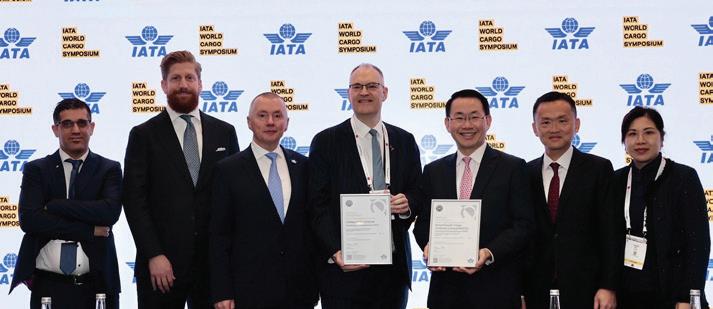
environmental management, aligned with ISO standards and recognised by leading ESG agencies.
Developed by IATA, the IEnvA programme supports aviation stakeholders, from airlines to airports to ramp handlers, in implementing a systematic approach to identifying, monitoring, controlling, and continuously improving their operations’ environmental performance. The certification is awarded following a comprehensive evaluation of the companies’ environmental sustainability management systems and their plans for continual performance improvement.
IATA said the handlers’ accreditation sets a strong example and demonstrates the positive impact of the certification in cargo operations. Mark Watts, Cathay Cargo Terminal operations chief, believes having IEnvA-certified facilities at Hong Kong International Airport further strengthens Hong Kong’s position as the world’s leading air cargo hub.
The program, which is available for all stakeholders in the aviation supply chain, has now reached 60 participating organisations. Hactl and Cathay became the first cargo handlers from North Asia to achieve the certification.
dnata’s autonomous drones take off in Dubai

dnata has successfully integrated autonomous drones into its cargo operations in Dubai as it looks to deliver enhanced operational efficiencies and remarkable benefits for its airline partners.
The airside services provider first introduced drones to its cargo operations in the UAE in 2022. They have now been integrated into the operations’ daily workflow and
warehouse inventory processes.
The company found that using drones reduced processing times on rack inventories by 20 percent and improved shipment tracking accuracy by over 99 percent for airline partners at Dubai International (DXB) and Dubai World Central (DWC). These drones monitor 1,800 shipments daily with 99 percent accuracy across 2,400 rack locations. dnata’s technology partner, Gather AI, has developed software that enables drones to map the environment, collect inventory data, count cases, measure temperature, and read barcodes using only their cameras
without any additional active infrastructure.
The drones, which can be used within cold chain facilities, can be paired to a tablet device that provides live inventory data. The collected data can be viewed directly on the tablet or the web dashboard via an application.
dnata plans to introduce the drones at further stations across its global cargo network in the next years, claiming that it has also contributed to reducing carbon footprint and improved safety by reducing the need for mobile elevating work platforms (also known as ‘cherry pickers’).

8 MARCH - APRIL 2024 | www.payloadasia.com
Cathay Cargo Terminal eyes ‘cashless, plastic-free’ ops
Cathay Cargo Terminal has become the first air cargo terminal in Hong Kong to introduce a business-tobusiness ePayment solution for import collection in partnership with PayCargo.
This marks another milestone in the company’s digital journey. The company enabled eAWBs (electronic airwaybills) and introduced eSRF (electronic Shipment Release Forms) to provide more choice and convenience for freight forwarders and their trucking agents.
Freight forwarders can now settle transactions anytime, anywhere, eliminating queuing for cash payments, enhancing security, and expediting the cargo release. Forwarders may also set up direct
credit facilities, the company noted.
Cathay Cargo Terminal already enables cashless cargo import payments at its Dongguan intermodal facility in China, with payments accepted via Alipay, WeChatPay, and UnionPay.
Operations chief Mark Watts said the ambition is to be the first air cargo terminal in Hong Kong to go fully cashless.
The company noted that online payments complement the eSRF process for import shipment release and make the full benefits of eSRF available to more of the terminal’s freight forwarder partners.
Cathay will become PayCargo’s launch partner in its home market. The
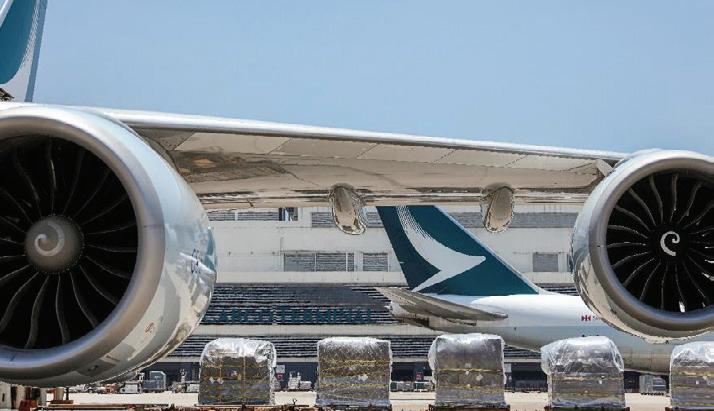
freight payment solution has been operating since 2009, with over 5,000 logistics vendors and over 50,000 registered payers (mostly freight forwarders) in its network.
In related news, Cathay announced that it will use new coversheet material made up of 50 percent recycled plastic for all export cargo shipments built up within its terminal from March 2024.
SATS Ltd. makes purchase in Stockholm, divests in the US
SATS Ltd proposed the acquisition of Terminal & Transporttjänst i Sigtuna AB (TT) and APH Logistics AB (APH), collectively through its subsidiary WFS Sweden, for SEK94 million, or approximately SGD12.1 million (US$9 million).
TT and APH operate out of Sweden’s Stockholm Arlanda airport and provide cargo handling and transportation services to airlines, freight forwarders, and time-critical medical suppliers. APH specialises in border inspection services with perishable and cold chain facilities, which complements the air cargo services provided by TT.
This move is expected to strengthen SATS’ presence in the Stockholm market and its specialised cargo handling capabilities and capacity.
The Singapore-based aviation cargo, ground handling, and food solutions company has been focused on advancing its ‘twin-engine’ growth strategy by strengthening its core operations in the city-state and replicating its capabilities to expand internationally.
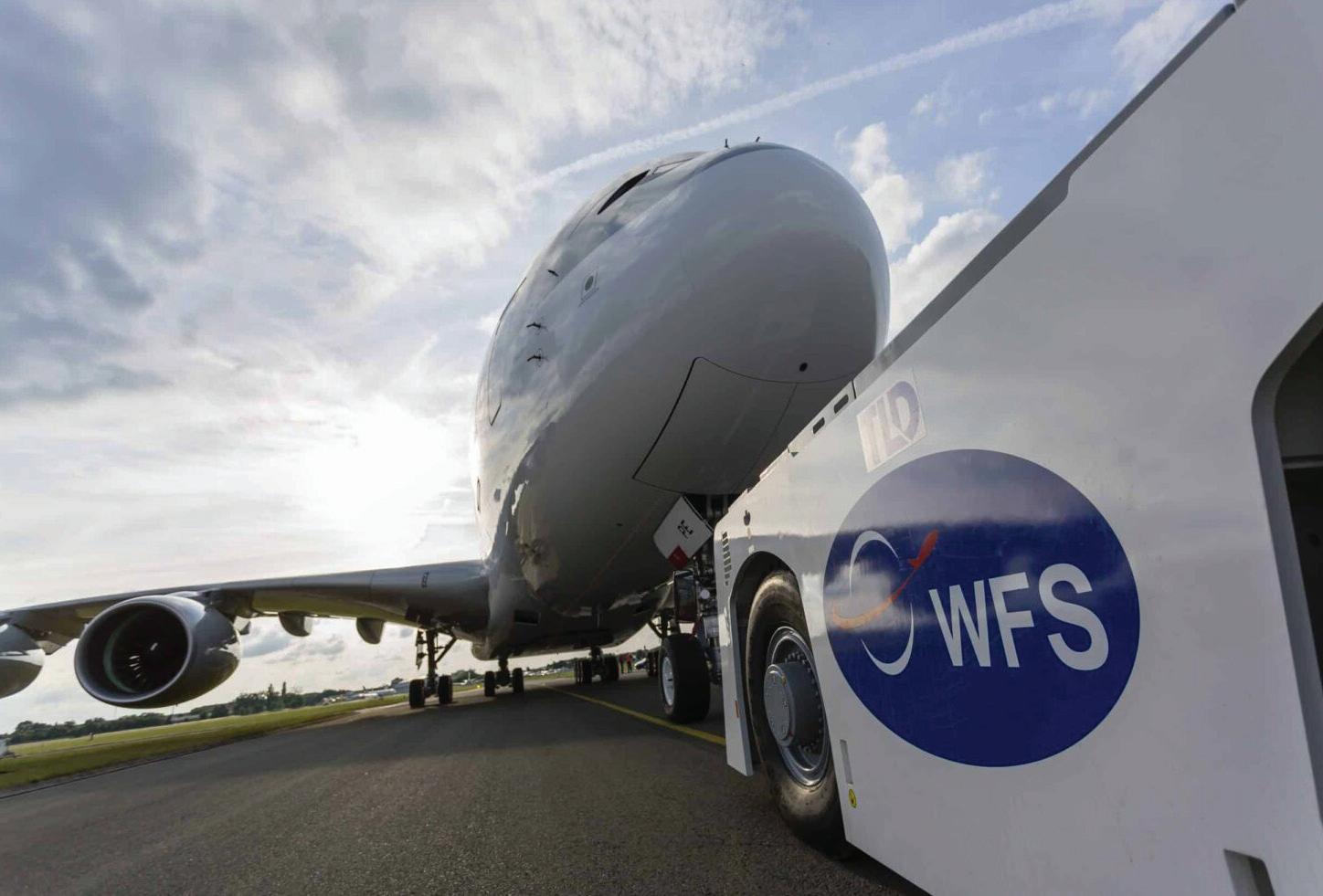
It acquired Worldwide Flight Services, transforming the group into a global powerhouse with a comprehensive network across the Americas, Europe, the Middle East, and Asia. It covers trade routes that control more than 50 percent of international air cargo volumes.
The combined group is known to
operate in seven of the top 10 cargo airports in Europe and five of the top 10 airports in North America and Asia, respectively.
SATS said the divestment aligns with its strategy following the acquisition of WFS to streamline operations, deliver synergies, and strengthen its balance sheet.

9 MARCH - APRIL 2024 | www.payloadasia.com NEWS - GROUND HANDLING
CHAMP floats solution for e-commerce parcels into the EU
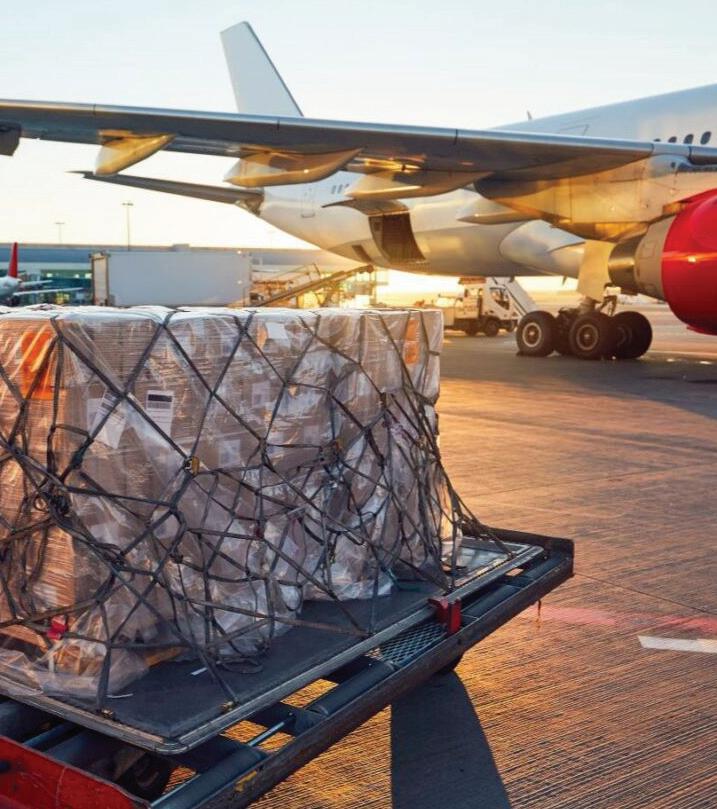
CHAMP Cargosystems has launched a new solution to address the latest ICS-2 requirements of the European Union for e-commerce shipments coming into the EU.
The ICS-2, or Import Control System, was implemented by the EU as part
of the latest customs pre-arrival security and safety programme for goods entering the region.
The latest phase or release of requirements demands that air cargo stakeholders, including express courier services, postal operators, and freight forwarders, report at the House Air Waybill (HAWB) level, with each commodity reported separately.
CHAMP’s Traxon Global eCommerce is purpose-built to address the requirements of cargo pre-load security filing and pre-arrival filing for e-commerce shipments under ICS-2.
The solution, which is the latest in the company’s suite of customs and security products, simplifies the filing process by efficiently consolidating information from the sender and generating outputs in formats specified by relevant governmental agencies.
Turkish forwarder PTS Worldwide Express and Shenzhen-based logistics company Harvest International have already adopted the new tool, which provides complete visibility throughout the cargo handling and clearance process and access to a detailed history and archives. The companies are looking to grow their e-commerce volumes, estimated to be worth US$6.9 trillion this year.
The Import Control System 2 (ICS-2) is a new IT system created to collect data about all goods entering or transported through the European Union, including non-EU countries Norway and Switzerland, before their arrival through an ENS. Release 2, which involves shipments transported by air in, has been effective from 1 March 2023. All goods transported by air in postal, express, and general cargo consignments will be subject to pre-loading filing requirements to complete pre-arrival ENS data requirements. Release 3, effective 3 June 2024, will include shipments transported by sea, inland waterways, road, and rail.
Dachser expands food logistics network in the Nordics
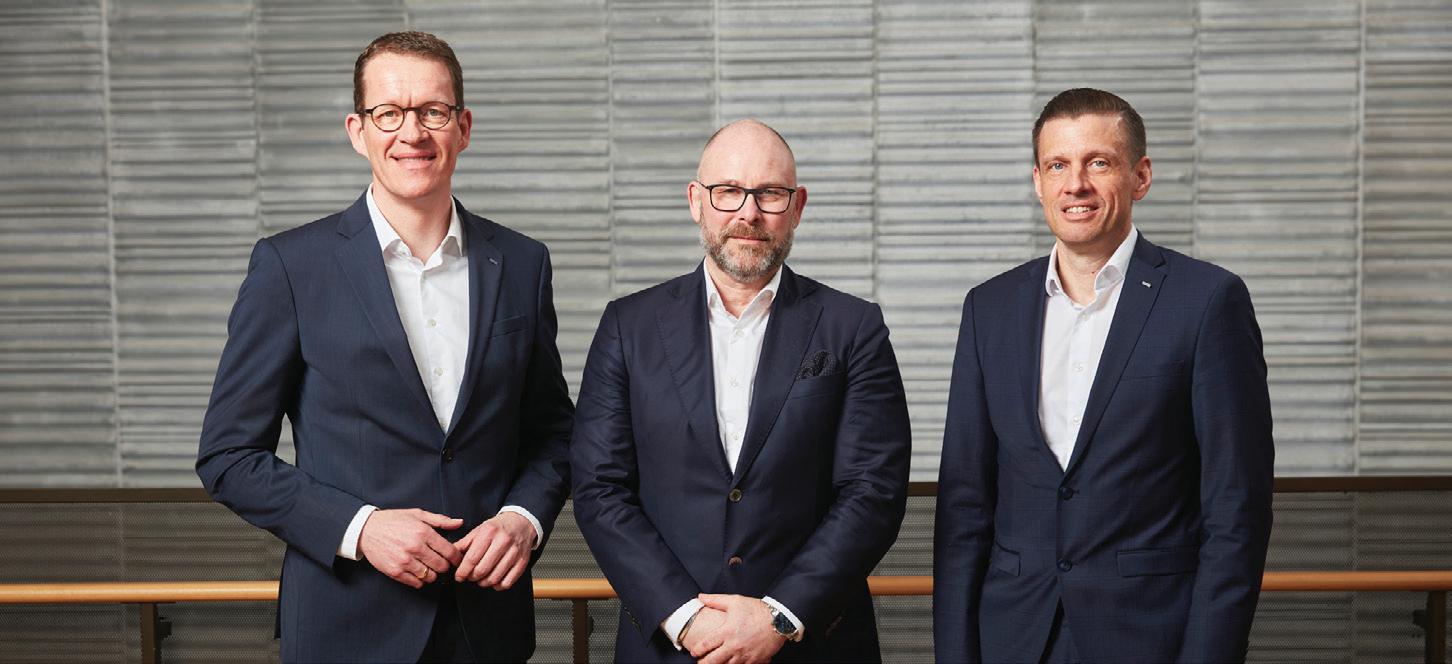
Dachser expanded its food logistics network in the Nordic region as the company completed the purchase of Swedish company Frigoscandia AB last March.
Frigoscandia, headquartered in Helsingborg, Sweden, works with service partners and uses its truck fleet to distribute temperature-controlled and frozen food. The company offers
transport services nationwide, with 12 food storage facilities and three in Norway. It also handles road, air, and sea transportation and is active in 51 international markets. In 2022, the company generated sales of some EUR300 million.
Dachser is represented in the Nordics by European Logistics, its business line for transporting and warehousing
industrial and consumer goods, and an air and sea freight organization. In December last year, it signed an agreement to acquire Frigoscandia with private equity investor Mutares SE & Co KGaA, and the European Commission approved the acquisition in February.
Frigoscandia CEO Peter Haveneth and his management team will continue to lead the company, reporting to Alexander Tonn, who holds the dual role of COO of Road Logistics and Managing Director of Food Logistics at Dachser. Around 1,300 employees will be added to Dachser’s operations in the region.
Since 2019, Frigoscandia has partnered with Sweden, Finland, and Norway in the European Food Network, an association of leading food logistics providers in 34 countries, which Dachser founded and managed as a system leader.

10 MARCH - APRIL 2024 | www.payloadasia.com
NEWS - LOGISTICS
U-Freight to boost healthcare supply chains with new partner
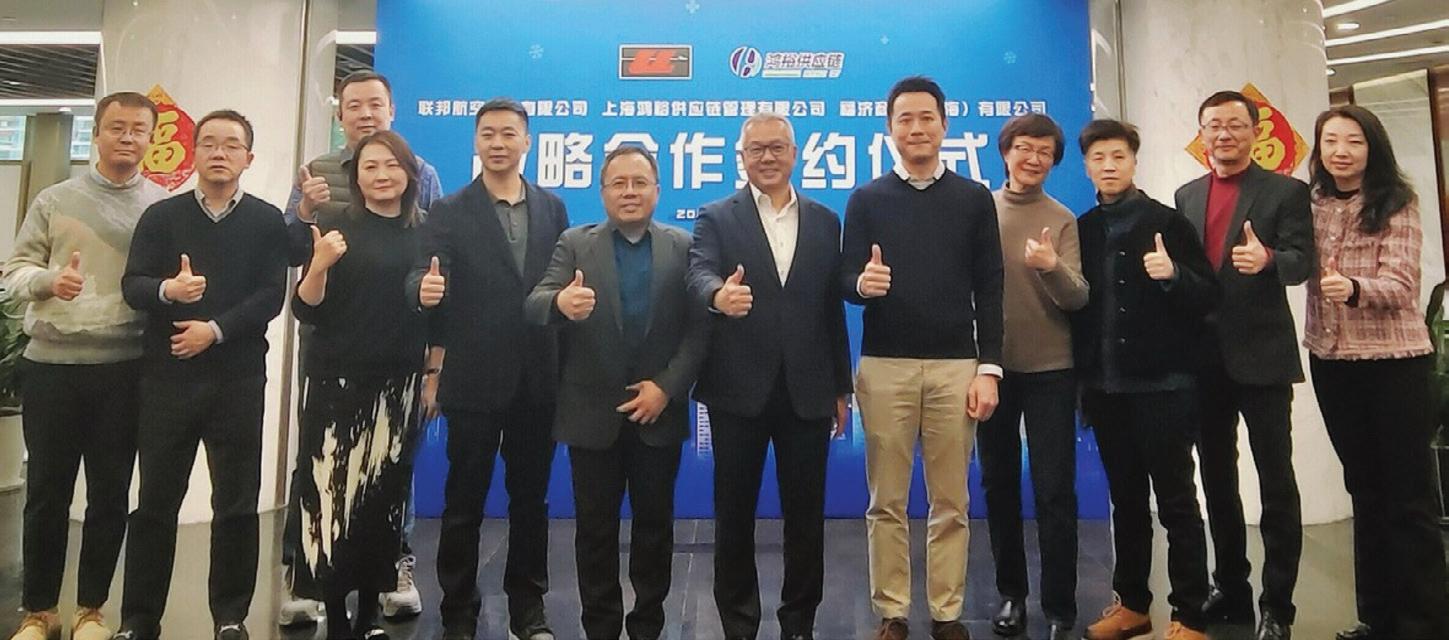
The U-Freight Group has signed a strategic cooperation agreement with Shanghai Hongyu Supply Chain Management Co, which has a strong presence in China’s medical and healthcare sectors.
The two companies will combine their expertise to create a global onestop medical supply chain service to provide more choices in managing the supply chains of medical and healthcare devices and more
integrated distribution and fulfilment operations worldwide.
The cooperation will see the two companies share their resources to develop complementary domestic and foreign supply chain management networks, incorporating transportation, storage and associated logistics services.
The move is expected to stimulate local manufacturers and traders to
capitalise on global opportunities and foreign health and medical device businesses to enter the Chinese market. Shanghai Hongyu Supply Chain Management will leverage UFL’s global network and 55 years of experience in cross-border warehousing and logistics services to accelerate its development in the niche sector globally.
Jacky Cao, general manager of Shanghai Hongyu Supply Chain Management, noted the partnership’s focus on reducing logistics costs associated with production, distribution, and international expansion, which has been discussed at the government level.
The alliance between the two companies will be comprehensive, encompassing traditional trade, e-commerce, and other avenues.
Simon Wong, UFL’s CEO, shared that the company’s history has always been based on leveraging the benefits of cooperating with like-minded logistics businesses rather than competing with them.
Shanghai-based CTS opens first Mexican warehouse
Shanghai-headquartered CTS Global Supply Chain Solutions has been extending its network into Mexico for over 3 years, and the company has recently opened its first full-function warehouse in Mexico City.
The company is looking to capture the opportunities amidst growing trade between Asia and Mexico, which has emerged as one of the top mobile automakers in the world, with rapid development in logistics infrastructure,
The 170,000-sqft facility in Mexico City, which started operations on 28 February, is the company’s largest overseas warehouse, which will offer traditional transloading and storage services, with e-commerce fulfillment capabilities.
CTS has offices in Tijuana, Guadalajara Monterrey, and the Mexican capital
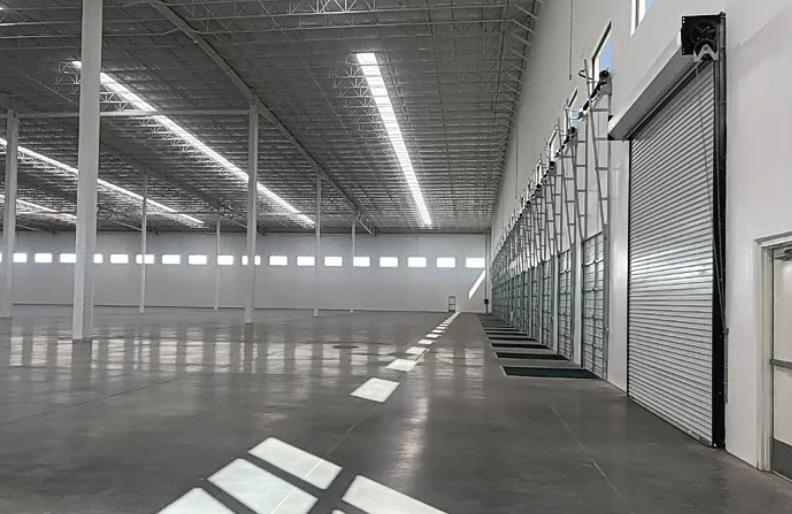
and has over 140 branches across the globe. with over 100 branches in China and strong representation in Southeast Asia, the EU, and North
America. It also has offices in Los Angeles, Dallas, Houston, Phoenix, Chicago, Atlanta, Miami, New York, Toronto, and Vancouver in Canada.

11 MARCH - APRIL 2024 | www.payloadasia.com NEWS - LOGISTICS
NEWS - FREIGHT FORWARDERS
Kuehne+Nagel widens Asia road network with acquisition
Kuehne+Nagel looks to bolster its road logistics capabilities in the region as the forwarder entered into an agreement to acquire Malaysiabased City Zone Express, a subsidiary of SGX mainboard-listed company Chasen Holdings Ltd
The move is expected to strengthen the forwarder’s cross-border road network across Southeast Asia as the region continues growing as a hightech and e-commerce manufacturing hub.

Kerry
Established in 2006, City Zone Express has over 500 employees and operates in Malaysia, Singapore, Vietnam, Thailand, and China. It has a fleet of 260 vehicles and 80,000 square metres of warehousing space and offers cross-border logistics services within Southeast Asia up to China.
Completion of the transaction is expected within the coming months, with the acquisition subject to approval from applicable regulatory authorities and Chasen Holdings’ shareholders, Kuehne+Nagel noted in a statement.
Logistics takes over French air freight specialist
Kerry Logistics Network has acquired a majority stake in French forwarder Business By Air SAS or BBA, which is expected to strengthen the company’s position in the EMEA region.
BBA has been KLN’s agent in France
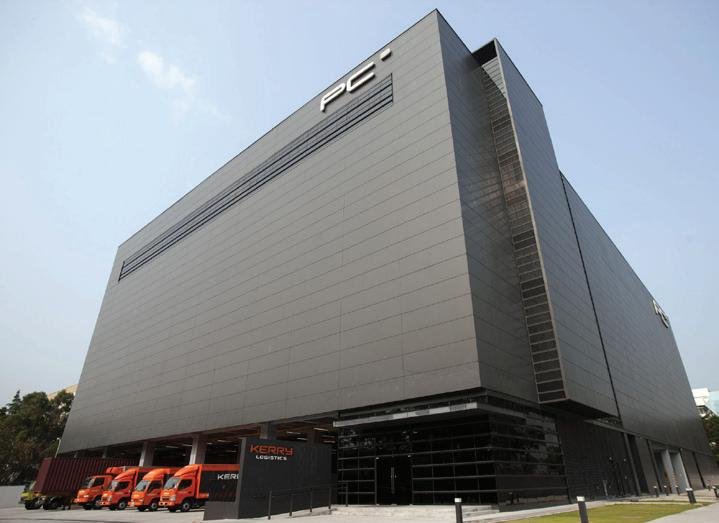
since 2016, and the upstream supply chain specialist provides air freight services for different industry verticals, including automotive, aerospace, and pharmaceutical, with an established presence in the African market.
Apart from multimodal freight forwarding, customs clearance, and nationwide trucking, the French forwarder also offers supply chain solutions covering express, onboard couriers, and project cargo, as well as logistics solutions for fine arts, perishables, and personal effects.
Founded in 1978, the company is headquartered in Roissy-en-France. It has four other offices in Orly,
Teleport goes live on CargoWise
Teleport will now offer direct data connection for online cargo bookings on WiseTech Global’s platform as it joined the CargoWise Carrier Connectivity Program.
The direct data connection with Teleport via API integration will enable freight forwarders worldwide to access schedules, capacity, and bookings within the CargoWise platform
Malaysia-based Teleport leverages AirAsia’s extensive passenger flight
belly network alongside its freighter capacity and a vast network of thirdparty airlines with connections into Europe, the Middle East, and the US. Its domestic and international air logistics network spans 85 cities in Southeast Asia and 160 cities across the Asia Pacific region.
“The API integration provides Teleport’s customers with realtime communication directly within CargoWise, from research and booking through to final execution and digital transmission of the Master
Nice, Le Havre, and Pointe-à-Pitre, Guadeloupe.
“The acquisition is a natural progression in our strategic pursuit of enhancing our IFF service offerings in the EMEA region,” said Vic Cheung, Group Managing Director of Kerry Logistics Network.
“We are looking forward to the synergies created between KLN’s ocean freight capabilities and BBA’s air freight expertise, and the extension of our service into the niche verticals of fine arts and perishables, which will further boost our global coverage and competency to offer comprehensive and flexible solutions to customers.”
Air Waybill. All with the flexibility to modify bookings as needed,” said Stuart Hayman, Head of Carrier Integration, WiseTech Global.


12 MARCH - APRIL 2024 | www.payloadasia.com
Aramex stays resilient in 2023 as int’l express volumes soar
Aramex concluded 2023 on a strong note, significantly boosting its net income in the final quarter, more than doubling the figure from the same period in 2022, alongside a record-breaking quarter for international express volumes. This segment experienced a 31% increase in shipments, reaching 7.6 million between October and December, the highest in the company’s history. For the entire year, international express volumes grew by 5%, with revenues for the quarter rising 8% year-on-year to AED 656 million, although the annual growth was a more modest 2%.
Despite these gains, Aramex faced challenges in other areas of its operation. The domestic express sector remained stable but saw a revenue decrease of 4% for the quarter and 5% for the year, primarily due to currency fluctuations. The freight forwarding unit also struggled, with revenues dropping by 9% in the fourth quarter and 11% annually,
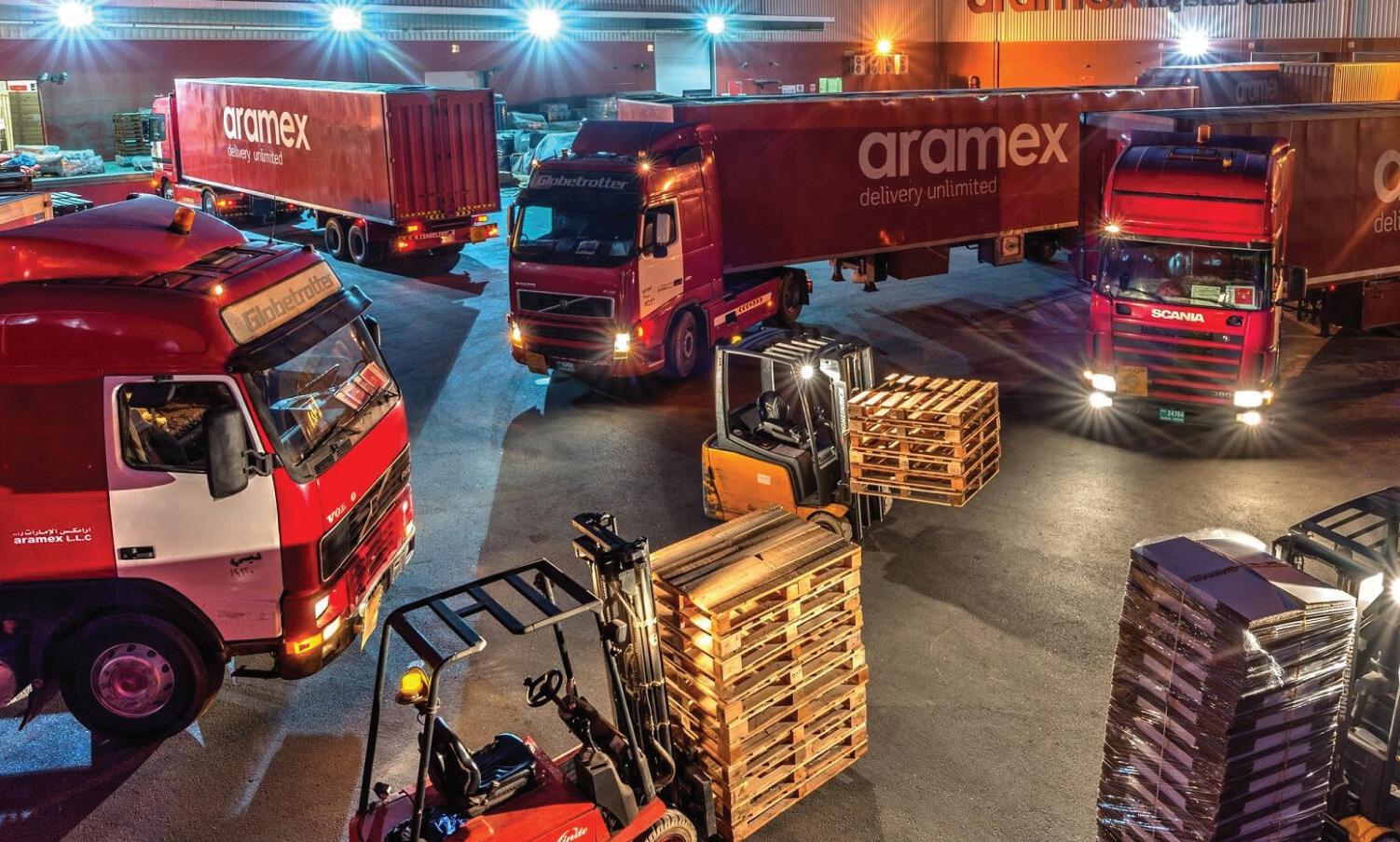
reflecting a downturn in global rates. Overall, Q4 revenue dipped slightly by 1% to AED 1.52 billion, and the annual figure fell by 4% to AED 5.69 billion. Nonetheless, Aramex CEO Othman Aljeda remains positive, citing new
client acquisitions and operational efficiency. Looking forward, Aramex plans to expand its international express services and enhance its offerings in premium products and dangerous goods.
Cainiao, Saudia, WFS form Liège eHub trifecta
Saudia Cargo, Worldwide Flight Services (WFS), and Cainiao Group have launched a strategic collaboration at Cainiao’s e-commerce hub in Belgium’s Liège Airport. The partnership aims to optimize logistics by streamlining operations and introducing innovations such as a 3-hour e-commerce transit time and rapid handling of both cargo and trucks. The initiative includes setting up three temperature-controlled facilities at the hub, designed to enhance the transportation of perishable and pharmaceutical goods.
This collaboration is a response to the increasing demand for efficient and high-quality logistics in the cross-border e-commerce sectors of the Middle East and Europe. Specific freighter flights from Hong Kong to Riyadh and Liège are part of the strategy to meet these demands, with WFS handling over 50,000 tonnes of cargo annually. Advanced technologies like automated guided vehicles and IoT are being employed
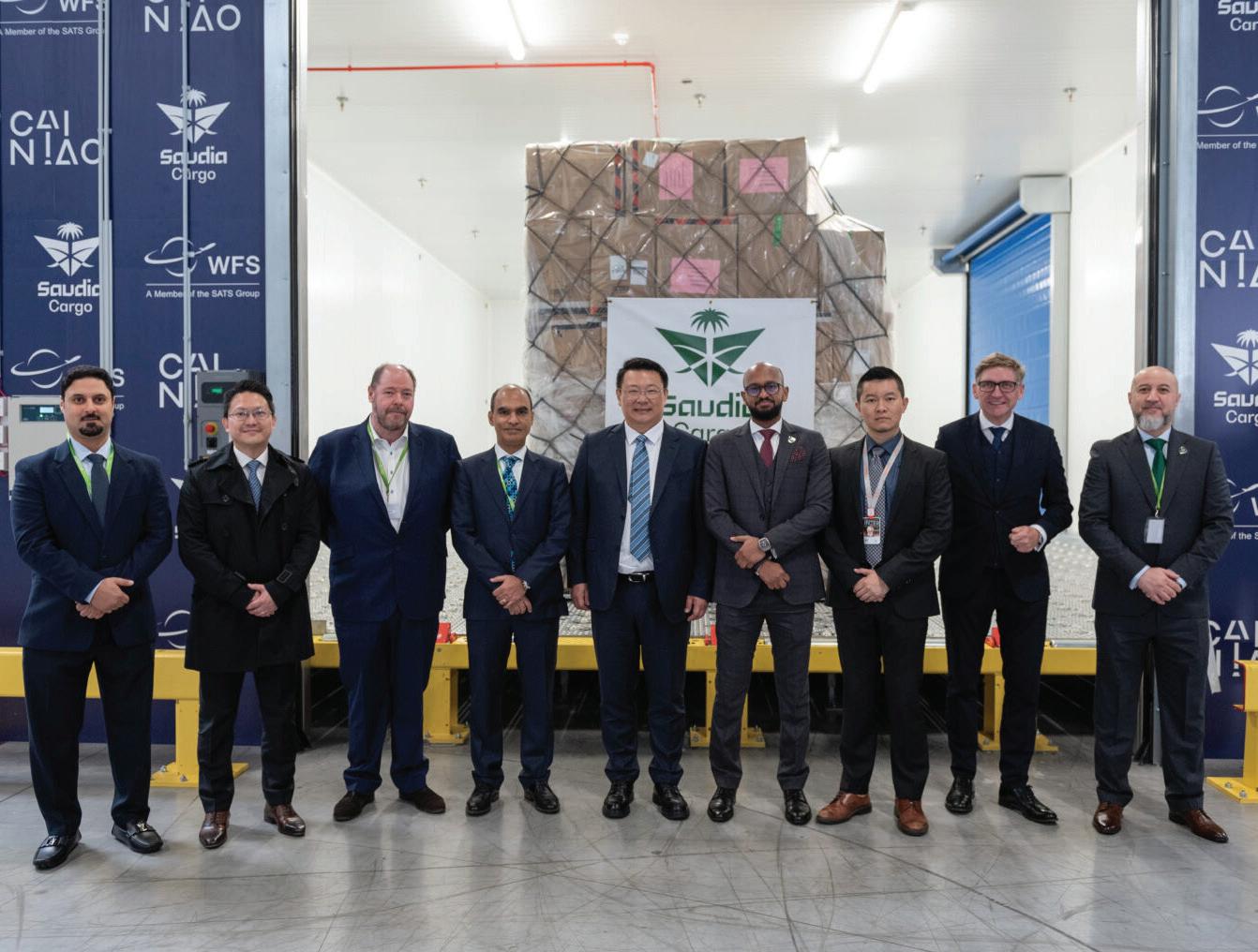
to improve cargo management. Additionally, Cainiao recently expanded its reach by launching
the Global 5-Day Delivery service with AliExpress, now available in ten countries.

13 MARCH - APRIL 2024 | www.payloadasia.com NEWS - EXPRESS
FedEx makes ‘historic’ cross-border delivery with electric vehicle
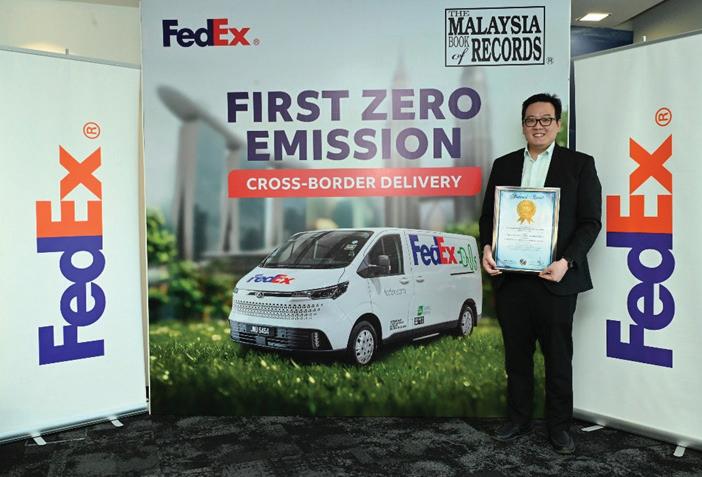
FedEx Express successfully completed the first-ever electric vehicle crossborder package delivery from Malaysia to Singapore, a journey spanning 406 kilometers from Shah Alam to Changi Airport. This milestone, recognized as the ‘First Zero Emission Cross-Border Delivery’ by the Malaysian Book of Records, is part of FedEx’s broader strategy to achieve carbon-neutral operations by 2040. The electric delivery significantly reduced CO2 emissions, saving about 100 kilograms compared to traditional diesel-powered vans.
Leveraging insights from this trial, FedEx is advancing its fleet electrification program, which aims to enhance the sustainability and efficiency of its logistics operations. This initiative is one of several environmental strategies at FedEx, including fuel savings, renewable energy investments, and sustainable packaging solutions, as they strive to refine their operational effectiveness and environmental footprint.


Can you See the Eco? www.efw.aero NEWS - EXPRESS

Greenwashing: What do transportation and logistics companies need to know?
BY CATH ISABEDRA
In the wake of a global push towards sustainability, the transport and logistics sector finds itself at a critical juncture. Plagued by a burgeoning carbon footprint, this industry faces the challenge of drastic emissions reductions and the pervasive threat of greenwashing—where firms adopt the facade of environmental friendliness without the substantive action to back it up.
Greenwashing is not merely a misstep in marketing but a formidable obstacle to genuine progress. With regulatory scrutiny intensifying and consumer expectations evolving, companies must navigate the dance of appearing green while committing to verifiable, impactful environmental strategies. This inquiry into the green veneer that coats much of the industry reveals the pitfalls of deceptive practices and the pathways toward authentic sustainability.
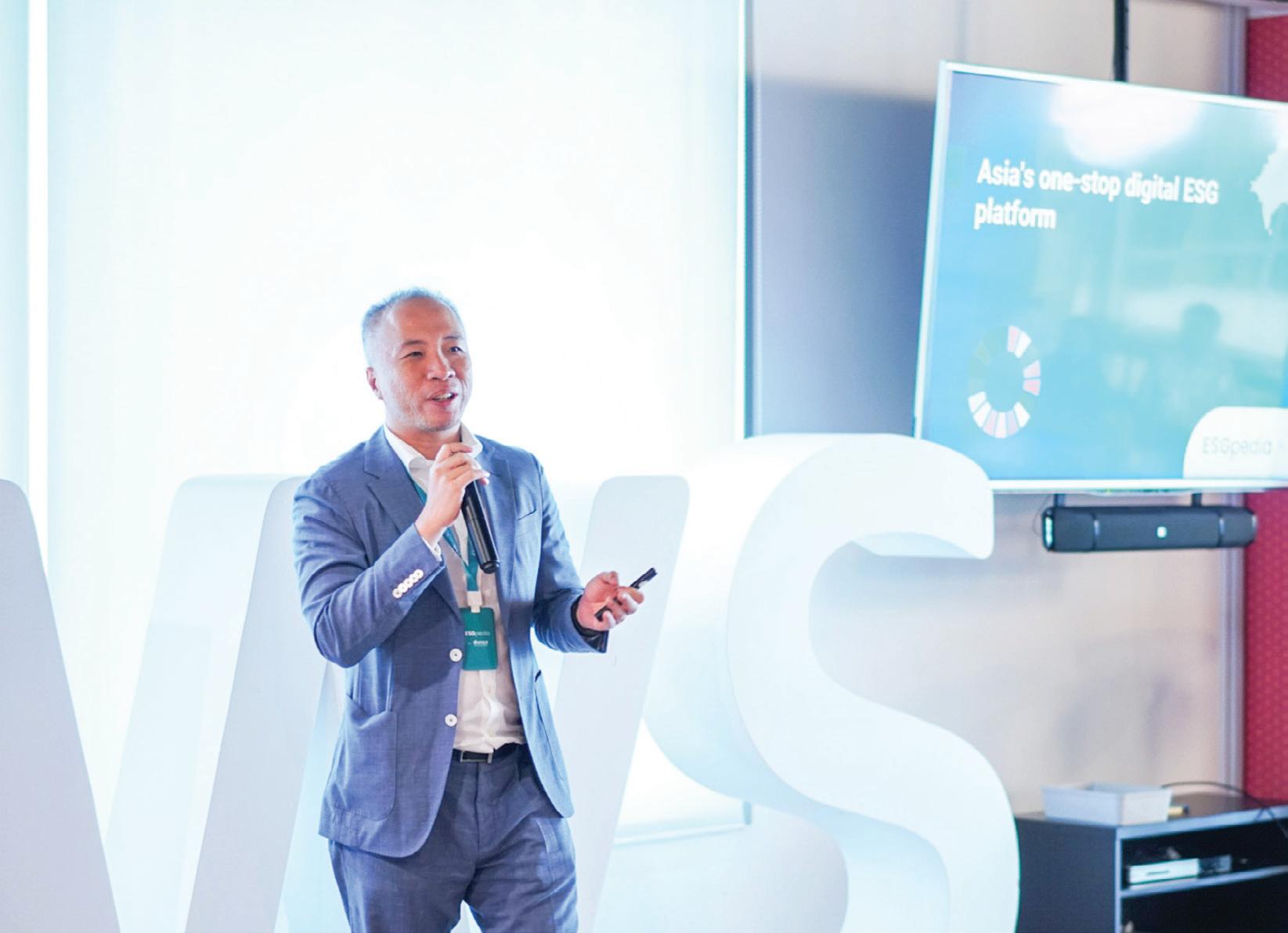
In the transport and logistics industry, a sector increasingly under the microscope for its environmental footprint, the practice of greenwashing has become a significant concern.
In 2022, a resurgence in passenger and cargo transport following the coronavirus pandemic resulted in a three percent uptick in CO2 emissions from transport compared to the previous year. Since 1990, CO2 emissions in the transport sector have increased at an average annual rate of 1.7 percent, a growth rate surpassed only by the industrial sector.
To align with the Net Zero Emissions (NZE) by 2050 Scenario, the transport sector must reduce its CO2 emissions by over three percent annually through 2030. Achieving these reductions will require robust regulations, fiscal incentives, and significant infrastructure investments supporting low- and zero-emission vehicles.
At the current rate, the industry is not on track to achieve this.
Why greenwashing flourishes in transport and logistics
Transport and logistics companies are susceptible to several greenwashing tactics. These include exaggerated claims that certain technologies, such as biofuels or hybrid engines, are completely sustainable without a transparent analysis of lifecycle impacts.
The surge in greenwashing is not just a result of regulatory pressures and consumer demand for green products. It’s also a reflection of consumer power. Companies often use greenwashing to respond to these pressures, opting to market themselves as eco-conscious rather than undertaking the more rigorous, usually costlier path of implementing real, sustainable changes.
This deceptive practice involves companies presenting their products or operations as environmentally friendly without substantiating these claims, often using misleading language and imagery to create a false impression of sustainability. Being more discerning in our choices can help combat greenwashing and drive the industry towards genuine sustainability.

Greenwashing has increasingly become a significant issue in the transport and logistics sector, where companies often make misleading claims about the environmental benefits of their services and products to cultivate an eco-friendly image.
Companies can falsely present themselves as environmentally responsible by overstating the use of sustainable fuels, exaggerating transport efficiency, or misrepresenting the environmental impact of their supply chains.
One of the most notorious examples of greenwashing occurred with Volkswagen’s “clean diesel” scandal, where vehicles were equipped with software designed to cheat emissions tests, misleading the public and regulators about their true environmental impact.
Greenwashing misleads consumers and stymies the industry’s progress by obscuring the distinction between true environmental stewardship and mere green veneer
15 MARCH - APRIL 2024 | www.payloadasia.com INSIGHTS
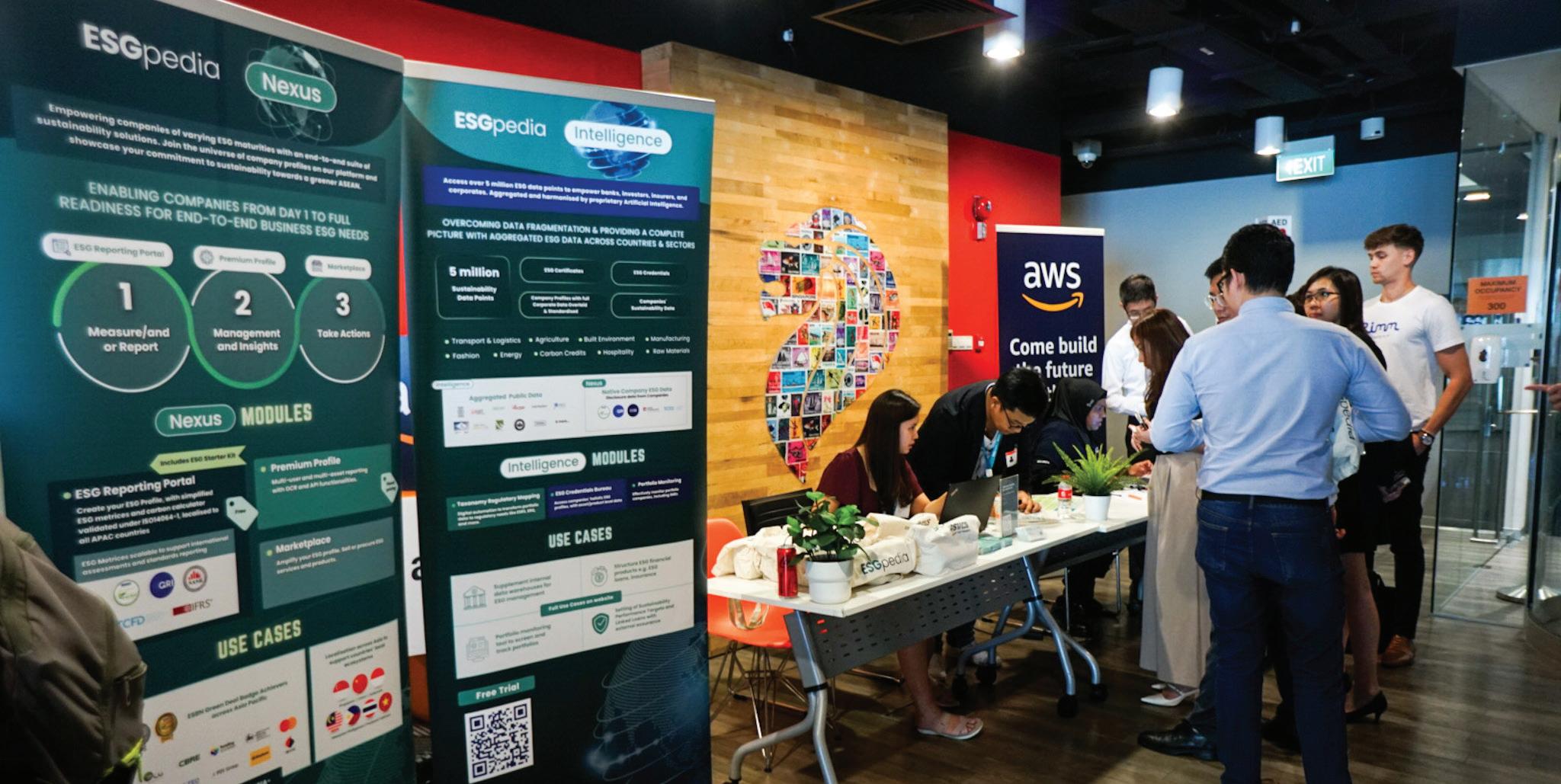
In recent years, transport and logistics companies have been actively making environmental, social, and governance (ESG) claims. As noted by Benjamin Soh, Founder and Managing Director of STACS, these companies focus on reducing emissions, utilizing carbon credits, and ensuring sustainable supply chains to project their commitment to environmental stewardship. They often seek labels and certifications, such as those from the Green Freight Asia Labelling and Certification Programme, to validate their green initiatives. However, the challenge remains to differentiate genuine sustainability efforts from greenwashed facades.
Soh emphasizes, “To substantiate claims, companies are looking towards labels and certifications to show their stakeholders, investors, and buyers their efforts towards sustainability. One example would be the Green Freight Asia Labelling and Certification Programme for Shippers and Carriers.”
Addressing greenwashing requires robust data management and verifiable sustainability targets. Technologies like ESGpedia play a pivotal role by providing
a platform where companies can maintain structured and trustworthy reporting that aligns with international standards. This ensures transparency and helps companies accurately measure and report their ESG footprints, thus substantiating their environmental claims.
Soh highlights the importance of digital solutions: “To avoid unintentional greenwashing, companies can employ rigorous ESG data management with accuracy and transparency at its core. Utilizing platforms like ESGpedia aids in maintaining structured and trustworthy reporting that aligns with international standards.”
Understanding and implementing mandatory ESG disclosure regulations
Recent mandatory ESG disclosure regulations are compelling companies in the sector to prioritize sustainability by enforcing transparency in reporting their ESG performance. These regulations, which mostly affect large or listed companies, are gradually expanding to include SMEs, especially in Asia. Tools like the ESGpedia Starter Tool have emerged to aid companies
in navigating these regulations by simplifying the ESG reporting process and providing practical utilities like embedded GHG emission calculators.
Soh explains the new challenges: “Recent mandatory ESG disclosure regulations have compelled the transport and logistics sector to prioritise sustainability by enforcing transparency and systematic reporting of ESG performance.”
While these changes aim to foster a more sustainable business environment, they also present significant compliance challenges, particularly for SMEs lacking the necessary resources. Workshops and initiatives like those conducted by the Singapore Logistics Association play a critical role in educating and assisting companies in transitioning to sustainable practices.
Transparency in the supply chain is particularly crucial, as it allows for accurate monitoring and verification of sustainable practices, thus minimizing the risk of greenwashing.

16 MARCH - APRIL 2024 | www.payloadasia.com
INSIGHTS

Leveraging technology to uphold integrity
As the transport and logistics sector continues to evolve under the growing scrutiny of ESG compliance, leveraging technology and datadriven solutions will be crucial in ensuring that companies can meet these challenges head-on.
By enhancing data accuracy, transparency, and compliance through AI and digital solutions, the sector can adhere to regulatory demands and genuinely advance in its sustainability journey, steering clear of the detrimental effects of greenwashing.
Soh sums it up: “By ensuring that ESG disclosures are precise and validated, companies can more convincingly demonstrate their commitment to sustainability, avoiding misleading claims that characterize greenwashing.”
Forging a sustainable path: A call for a collaborative and authentic action
The transport and logistics sector must transcend the superficial allure of greenwashing and embrace a collaborative, authentic approach to environmental responsibility.
By uniting industry stakeholders— from corporate leaders to
regulators, from consumers to advocacy groups—around robust, transparent sustainability practices, we can cultivate an ecosystem that prioritizes real progress over mere perception.
This collective action, grounded in accountability and driven by innovation, will enhance the industry’s credibility and ensure that it plays a transformative role in shaping a sustainable future.
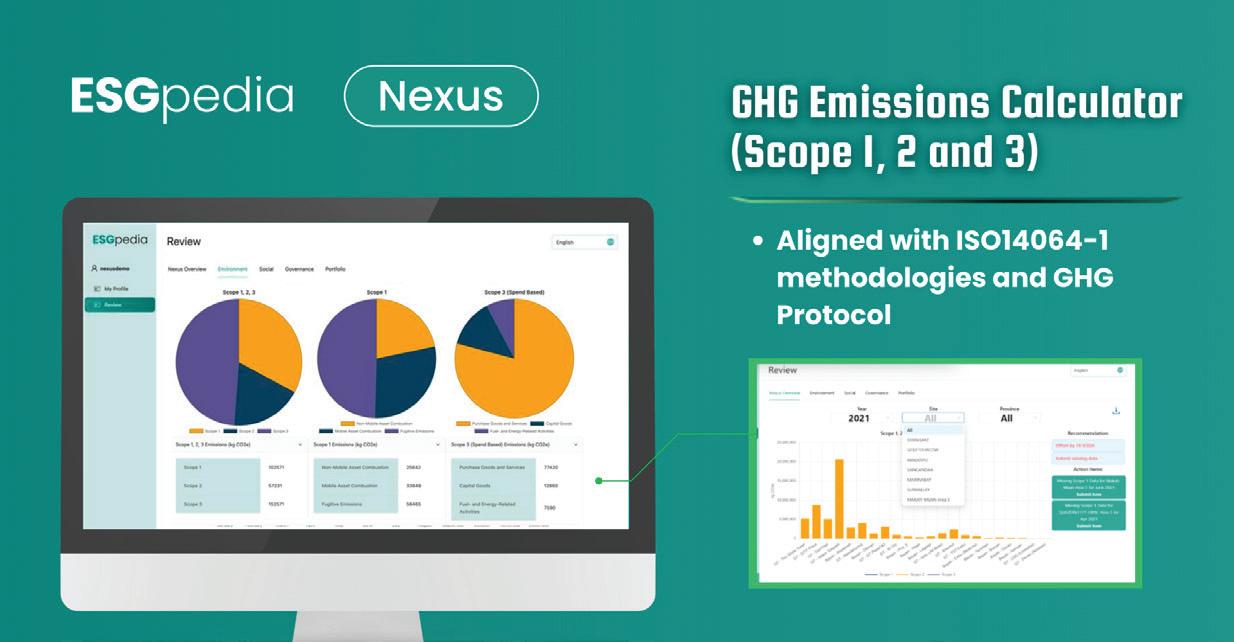


insights from Benjamin Soh. Soh is Founder and Managing Director of STACS, Asia’s leading ESG data and technology company, headquartered in Singapore. Its ESGpedia platform powers the ESCAP Sustainable Business Network (ESBN) Asia-Pacific Green Deal digital platform, the ASEAN Single Accesspoint for ESG Data (SAFE) pilot initiative, and the Monetary Authority of Singapore’s (MAS) Greenprint ESG Registry. ESGpedia ser serves as the Nexus of ESG, digitally empowering corporates, SMEs, and the financial sector to ensure compliance with ESG regulation and attain their ESG goals.
A serial entrepreneur who previously founded a multinational, regulated B2B FinTech serving the needs of more than 100 financial services firms worldwide, Ben is also currently serving as the Chairman of the Green and Sustainable FinTech Sub-Committee of the Singapore FinTech Association (SFA) and is a member of the Singapore Computer Society (SCS) Sustainable Tech Special Interest Group.
17 MARCH - APRIL 2024 | www.payloadasia.com INSIGHTS
With
Logistics trends to look out for in 2024
BY ERIC TAN Managing Director, FedEx Express Singapore
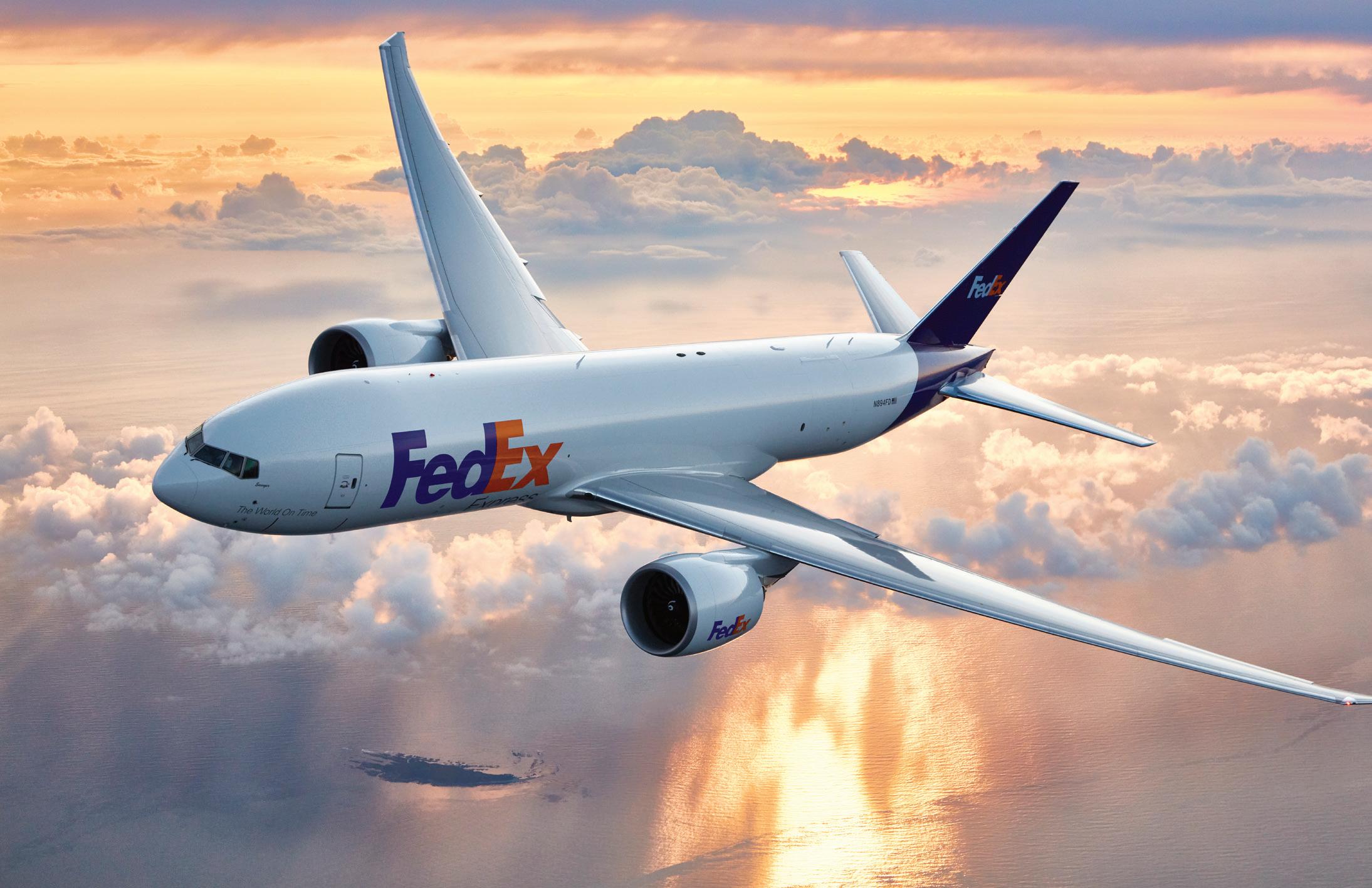
In the fast-evolving world of logistics, 2024 will be a year of transformative changes. At FedEx, we have identified several key trends that will shape the industry, including the focus on sustainable logistics, the increasing adoption of emerging tech, and the demand for flexible delivery options.
These trends represent crucial advancements that could help drive efficiency, sustainability, and improved customer experiences. As we delve into these trends, it’s evident that innovation and strategic planning are essential in navigating the evolving logistics landscape and exceeding consumers’ expectations.
In the coming year, there will be an increased emphasis on sustainable logistics, driven by a growing environmental consciousness in business operations. To demonstrate commitment, logistics companies can take tangible steps such as increasing the percentage of recycled materials used in their packaging and conducting more
stringent reviews with packaging suppliers to ensure they are aligned with environmental management practises.
Moreover, consumer education on right-sizing packages will persist. This ongoing effort is crucial because a joint commitment from both consumers and logistics companies is essential to make a meaningful impact in reducing excess waste.
Today, logistics companies are more well-positioned to support businesses in meeting their sustainability goals by encouraging mindful practices through the use of innovative digital solutions.
Beyond reducing waste and enhancing cargo space utilisation, which can contribute to lower emissions, right sizing packages also help eliminate gaps in packages which lower the risk of damage to goods during transit.
Another key trend that we identified would be the use of digital tools to help with sustainability efforts.
The tools of today are capable of providing near-real time estimates of carbon emissions, aiding businesses in monitoring their environmental impact. By harnessing cloud-based data engines, like our FedEx® Sustainability Insights tool, we can offer customers information that can be used to help them evaluate their carbon impact and make informed decisions regarding shipping strategies.
Such smart tools can provide businesses with insights that can aid decision-making, reporting, and future planning within their supply chains from a sustainability perspective.

18 MARCH - APRIL 2024 | www.payloadasia.com
WORDS
FEATURE STORY - FEDEX

We also anticipate that emerging tech will continue to revolutionise the logistics industry, which will result in an uptick in adoption.
For example, location intelligence has enabled dynamic decision-making in delivery and route planning. This shift integrates digital and physical data, offering sophisticated geospatial insights and real-time optimisation of delivery routes.
This multi-faceted approach promises even greater impact in the future with regard to shipment tracking. Moreover, ‘elastic’ logistics, driven by AI and predictive analytics, could enable agile adjustments in scheduling, capacity, and route
The evolution of ‘Know Your Shipment’ will also go beyond mere location-based data. It may continue to evolve to encompass diverse layers— from big data and analytics to seamless cloud accessibility— ensuring comprehensive and cohesive shipment management.
optimisation in response to volatile markets. This flexibility in supply chains helps businesses align with their strategic goals and manage risk effectively. Businesses can use data-driven adaptive logistics to help optimise resources and reduce operational expenses.
Last but not least, as e-commerce continues to thrive, consumers in 2024 may have higher expectations for versatile delivery options. In response, logistics companies are anticipated to expand the number of self-collection points to enhance convenience and flexibility for customers retrieving their packages.
This flexibility not only empowers consumers but can also reduce the occurrence of unsuccessful deliveries, thereby improving the overall delivery process for everyone involved.
As we enter into 2024, we anticipate these trends to take centre-stage in the logistics industry, catalysing the change towards innovative, sustainable, and customercentric logistics solutions. These developments could help sculpt a future underpinned by efficiency and responsibility.
By offering the option of self-collection, consumers who are unable to receive deliveries at their original address can request an alternate location that suits their schedule, be it close to their home or workplace.

Eric Tan is a seasoned executive with over 22 years of experience in logistics and transportation. As Managing Director of FedEx Singapore, he oversees operational activities, implements corporate strategies, and drives overall growth. Eric also manages the South Pacific Regional Hub in Singapore.
With a strong commitment to ESG principles, he collaborates with government officials and industry leaders to promote sustainability. He prioritises CSR and has led the FedEx/Junior Achievers International Trade Challenge in Singapore for over a decade. Eric holds an MBA from Indiana State University and a Bachelor of Business Administration from the University of Iowa’s Tippie College of Business. He is a certified SAFe 5 Practitioner (Scaled Agile).

19 MARCH - APRIL 2024 | www.payloadasia.com FEATURE STORY - FEDEX
Charting a Course for Climate-Friendly Logistics: A Deep Dive into Dachser’s Sustainability Initiatives
BY CATH ISABEDRA
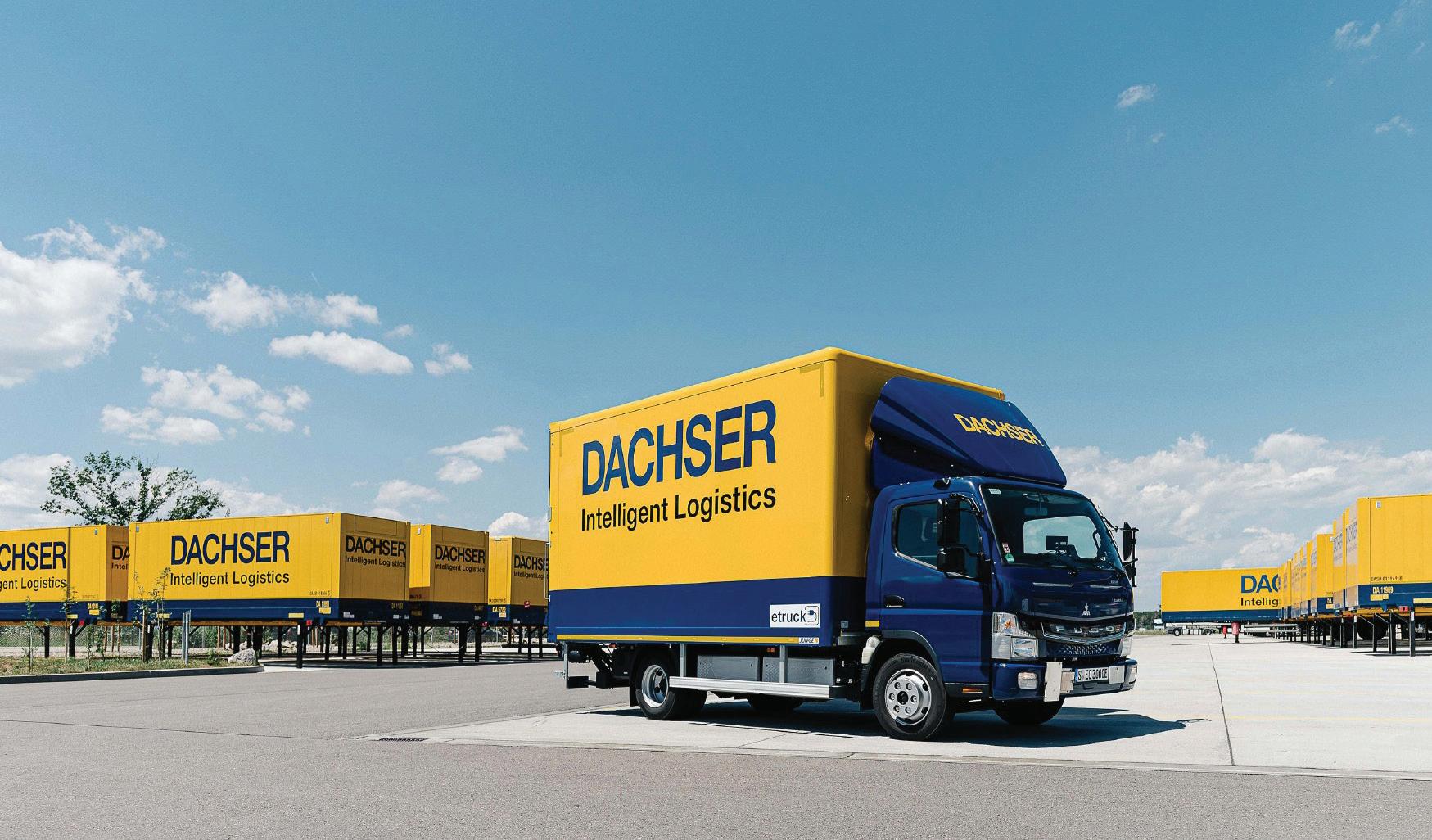
In the dynamic realm of global commerce, the aviation and logistics sectors serve as crucial conduits, enabling the movement of goods and services across borders. Yet, as the world confronts the pressing issue of climate change, these industries face a pivotal moment, striving to balance operational efficiency with environmental stewardship.
In this context, Dachser emerges as a beacon of innovation, charting a unique course in sustainable logistics with steadfast dedication and foresight.
With a rich history of excellence spanning decades, Dachser has consistently demonstrated leadership in the logistics sphere, continually challenging industry norms. Today, as the call for sustainable practices grows louder, Dachser remains at the vanguard of transformative change, pioneering initiatives that reshape the future of logistics through an environmentally conscious prism.
In this exclusive interview, we have the privilege of engaging with Roman
Müller, Managing Director of Air & Sea Logistics Asia Pacific of Dachser, to gain invaluable insights into the company’s strategic vision and its profound impact on the aviation and logistics landscape.
From meticulous strategic integration to strategic partnerships, Müller provides illuminating perspectives on Dachser’s unwavering commitment to sustainability, underscoring its pivotal role as a trailblazer in fostering environmentally responsible supply chains.
Strategic integration for sustainable growth
Dachser’s approach to integrating new companies and technologies into its operations is underpinned by strategic alignment and due diligence. According to Müller, the company conducts thorough assessments to ensure cultural and operational compatibility, facilitating seamless integration.
Clear communication and change management play pivotal roles in this process, fostering a unified
corporate culture and mitigating resistance to change. Moreover, operational standardization and technology integration are prioritized to achieve consistency and efficiency across the board.
“Dachser conducts thorough due diligence to ensure cultural and operational alignment before integrating new companies or technologies. This includes assessing strategic fit, cultural compatibility, and operational synergies to facilitate smooth integration,” Müller explains.
“By engaging employees, customers, and other stakeholders early on and providing support through change management initiatives, Dachser fosters a unified corporate culture and minimizes resistance to change,” he adds.

20 MARCH - APRIL 2024 | www.payloadasia.com
SPOTLIGHT - DACHSER

Incorporating climate-friendly technology
Dachser’s commitment to sustainability extends beyond rhetoric, manifesting in tangible actions to reduce emissions. Through strategic partnerships and internal initiatives, the company is actively incorporating climatefriendly technologies into its logistics and supply chain operations.
Müller highlights investments in e-mobility initiatives and the operationalization of the Dachser Emission-Free Delivery concept in European cities, emphasizing the pivotal role of electric vehicles in reducing carbon emissions.
“The company is driving change towards more sustainable logistics through the implementation of new digital technologies and tools to optimize processes and reduce greenhouse gas emissions,” he emphasizes.
Aligning with global trends and regulations
Dachser’s sustainability initiatives are closely aligned with global trends and regulations governing climate-friendly logistics. By integrating renewable energy and e-mobility solutions, the company is at the forefront of reducing carbon emissions in transportation.
Müller underscores the importance of adaptation to regulatory frameworks, emphasizing proactive measures to ensure compliance with evolving standards.
“By investing in zero-emission vehicles and infrastructure, Dachser demonstrates proactive measures to align with future regulations, ensuring its operations remain sustainable and compliant with global standards,” he affirms.
Safer and more sustainable supply chain practices
Efforts to enhance process efficiency, energy efficiency, and innovation underscore Dachser’s commitment to safer and more sustainable supply chain practices. Leveraging technologies such as artificial intelligence and IoT applications, the company aims to maximize efficiency while minimizing environmental impact.
“Dachser is continuously increasing the efficiency of its logistics processes. Leveraging technologies such as artificial intelligence and Internet of Things applications, the company aims to maximize truck capacity utilization, avoid empty-truck kilometers, and employ multimodal transportation in combined transport,” Müller explains.

Driving collaboration for sustainable logistics
Dachser recognizes that achieving sustainability goals requires collaborative efforts across the industry. Müller cites examples of collaboration with industry players, such as partnering in the development of electric trucks, as a testament to Dachser’s commitment to driving sustainable practices.
Looking ahead, Müller envisions a future marked by the adoption of electric vehicles, optimization of transportation routes, and supply chain digitization in the Asia Pacific region. Driven by government initiatives and industry advancements, sustainable logistics practices will continue to gain prominence. Dachser’s long-term goals in the region emphasize market enhancement, regional expansion, and operational reinforcement, all while prioritizing sustainability.
Dachser’s unwavering commitment to sustainability serves as a beacon of hope in the aviation and logistics sector. Through strategic integration, technological innovation, and collaborative partnerships, the company is spearheading a paradigm shift towards greener, more efficient logistics operations.
As global challenges like climate change loom large, Dachser’s proactive stance underscores the transformative power of sustainable practices in shaping a brighter future for generations to come.
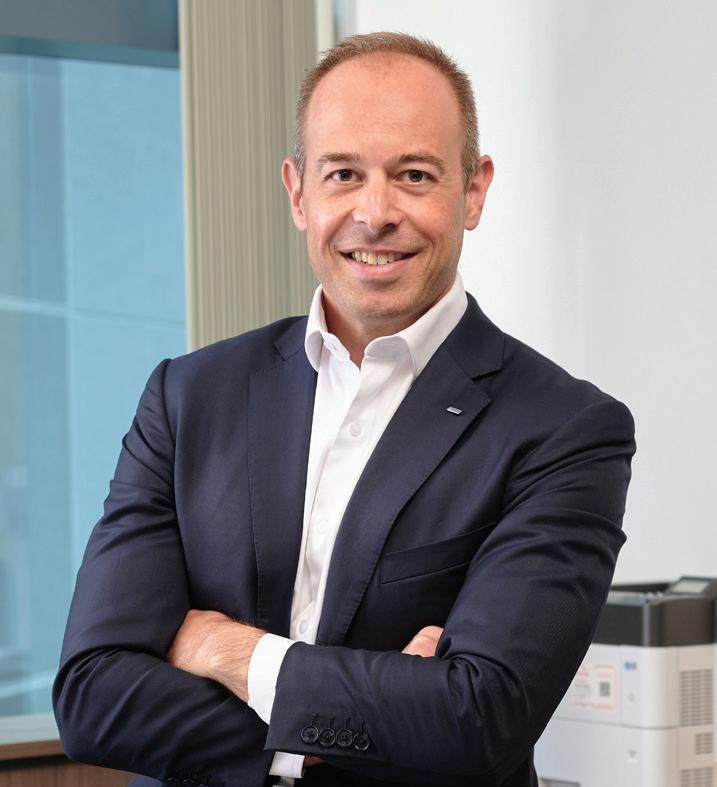
21 MARCH - APRIL 2024 | www.payloadasia.com SPOTLIGHT - DACHSER
Hong Kong Takes Center Stage at IATA WCS 2024, Showcasing Air Cargo Resilience and Innovation
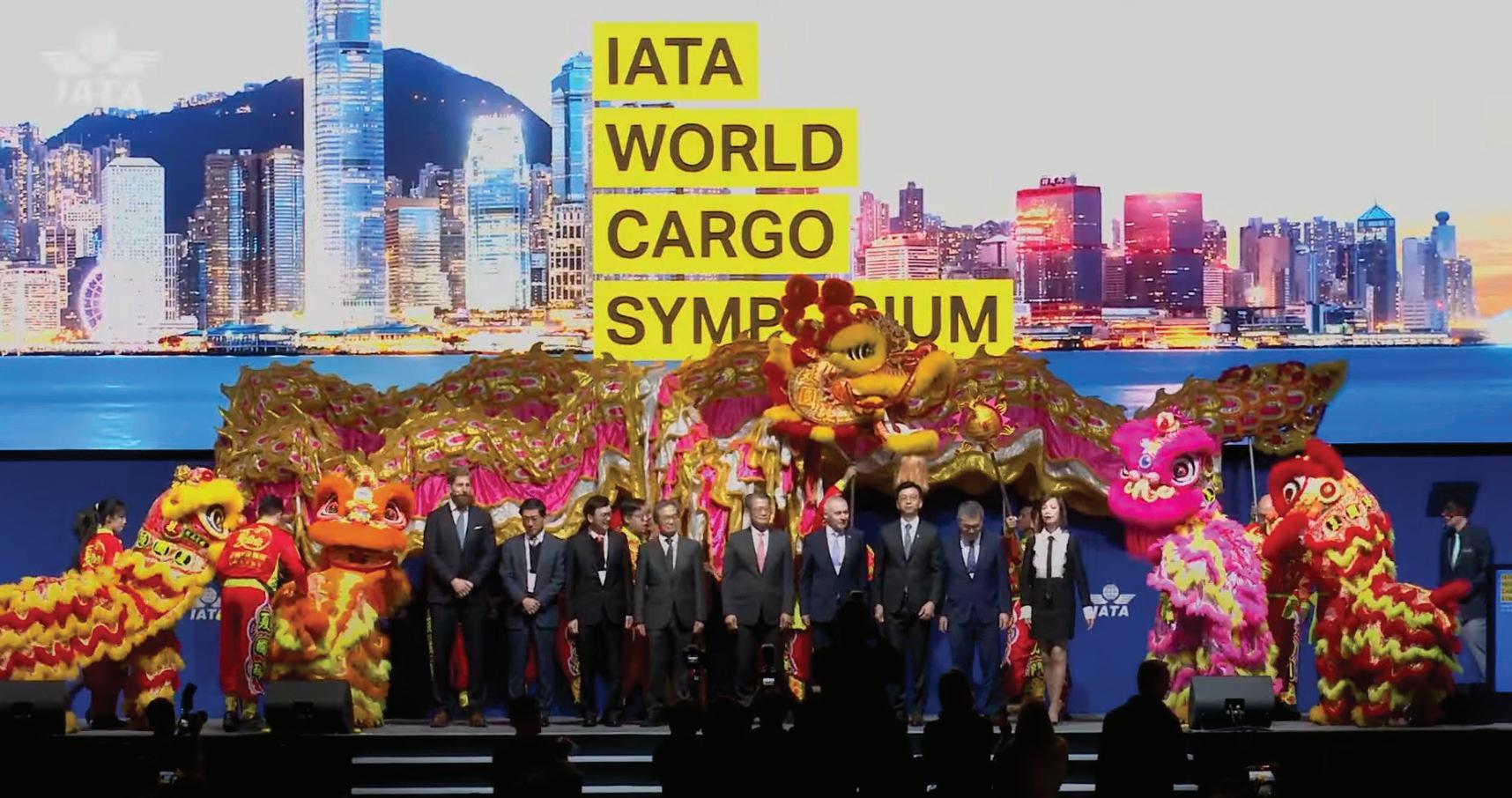
The 2024 IATA World Cargo Symposium (WCS), held in Hong Kong from March 12 to 14, marked a significant event for the global air cargo industry. This year’s symposium, attended by nearly 2,000 delegates, was notable for its size, depth, and variety of topics covered, ranging from digitalization, sustainability, and safety to the specifics of cargo operations and customs.
Hong Kong played a central role in this year’s symposium, showcasing its resurgence and development in the air cargo sector post-COVID. The city’s efforts to enhance its logistics capabilities were highlighted by significant upgrades at its airport, including the development of a three-runway system and improved intermodal transport facilities. These advancements are part of a broader strategy to transform from a city airport to a bustling airport city.
The symposium addressed critical industry themes through specialized streams and sessions. A significant
focus was on digitalization, which included discussions on integrating digital processes in cargo operations and the implementation of technologies like the IATA ONE Record, an initiative aimed at standardizing information sharing across the air cargo supply chain.
Sustainability was another pivotal theme, with various sessions dedicated to discussing the air cargo
industry’s path to achieve net-zero emissions and adopting sustainable practices across operations.
Overall, WCS 2024 provided a comprehensive platform for industry leaders to network, share insights, and discuss the future direction of the air cargo industry. It emphasized innovation, collaboration, and sustainability as key drivers of future growth.
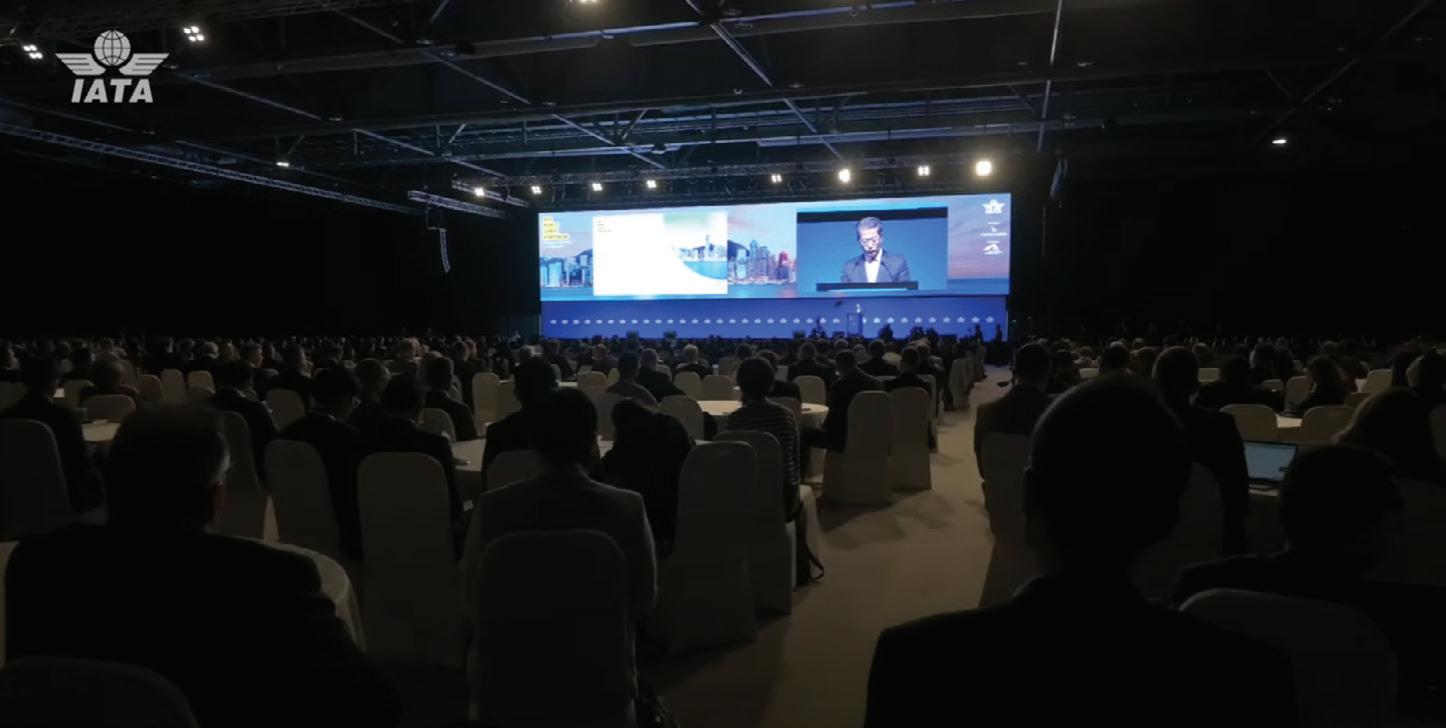

22 MARCH - APRIL 2024 | www.payloadasia.com
Photo via YouTube video - IATAtv - WCS 2024 highlights
EVENTS
Photo via YouTube video - IATAtv - WCS 2024 highlights
Revival and Innovation at the Singapore Airshow 2024
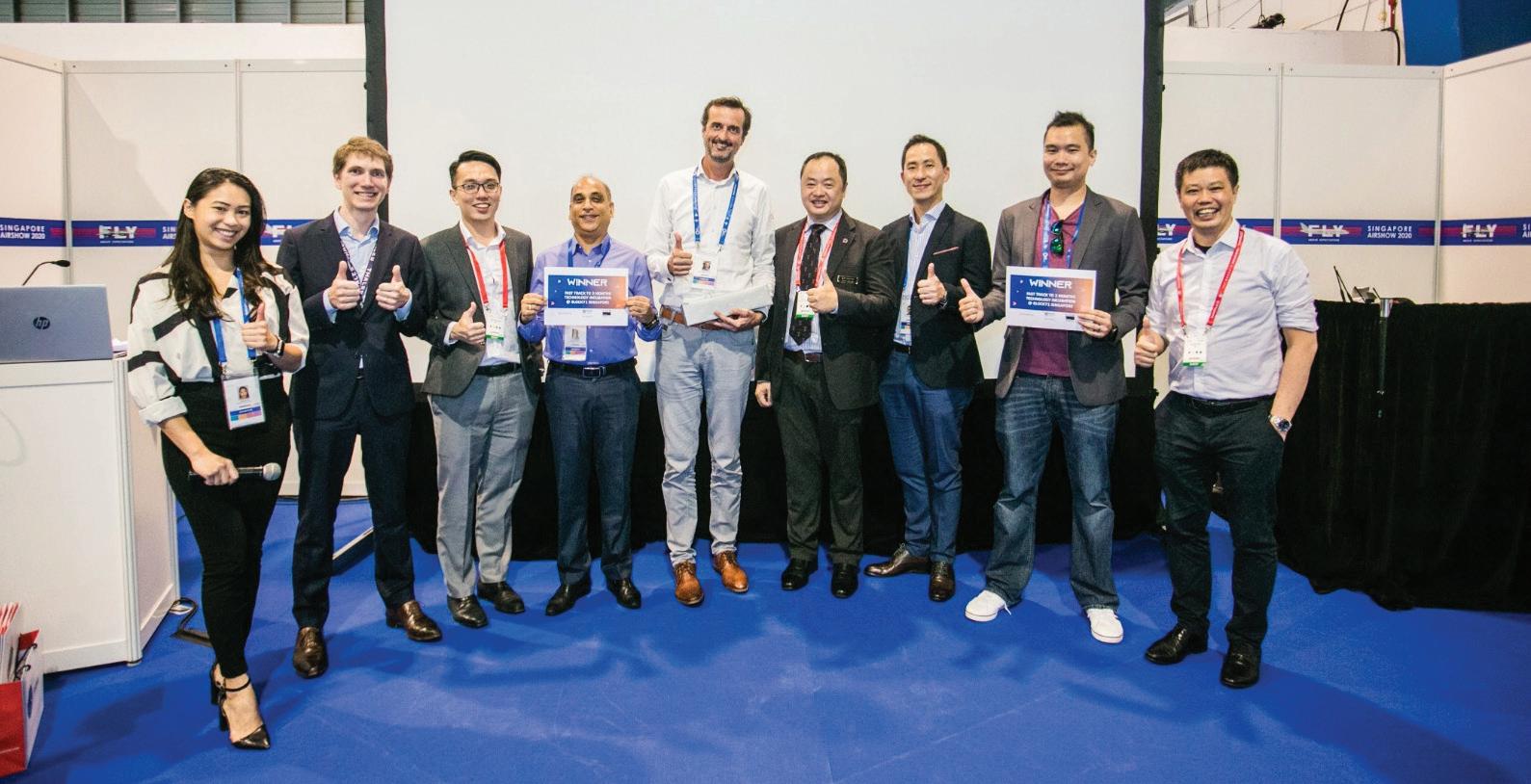
Last February, the Singapore Airshow made a powerful return, signaling a robust recovery for the global aerospace and defense sectors. Held at the Changi Exhibition Centre, this event set a new record with nearly 60,000 trade attendees, the highest in its history, underscoring renewed optimism and dynamic growth in the aviation industry.
Unprecedented Attendance and Discussions
This edition of the Singapore Airshow was about numbers, the quality of interactions, and the depth of discussions. The event hosted the AeroForum, a premier thought-leadership forum, where industry experts deliberated pivotal topics such as aviation leadership, sustainable aviation, and advanced air mobility.
Notably, major announcements from aerospace giants echoed the focus on sustainable aviation.
Airbus, for example, showcased its initiatives towards achieving carbon neutrality by 2050, including a
significant move towards sustainable aviation fuel (SAF) and plans for a hydrogen-powered aircraft expected by 2035.
A Platform for Innovation and Strategic Partnerships
The airshow was a fertile ground for forging strategic partnerships and unveiling innovative technologies.
The debut of China’s ARJ21 and C919 jets was notable and drew international attention, with significant deals announced, including one with Tibet Airlines for 50 planes.
On the business front, major orders were placed by several airlines, including Starlux Airlines and Vietjet Air, reflecting a bullish outlook on future travel demand.
Engaging the Public and Shaping the Future
Beyond trade discussions, the airshow engaged the public with its “Weekend@Airshow,” featuring thrilling aerial displays and interactive activities, making aviation wonders accessible to enthusiasts and

families alike. The event emphasized its commitment to nurturing the next generation of aerospace leaders through initiatives like “What’s Next@Singapore Airshow,” which showcased emerging technologies from global startups.
Commitment to Sustainability
Strengthening its commitment to environmental stewardship, the Singapore Airshow 2024 partnered with CarbonClick to provide attendees the option to offset their carbon emissions, thereby aligning with broader industry goals towards sustainability.
The Singapore Airshow 2024 marked a significant rebound for the aviation industry and set a progressive agenda towards innovation, sustainability, and global collaboration.
The insights and partnerships formed at this event are expected to propel significant advancements in aerospace technology and operations.
23 MARCH - APRIL 2024 | www.payloadasia.com EVENTS







 Catherine Isabedra Chief Editor
Catherine Isabedra Chief Editor



















































